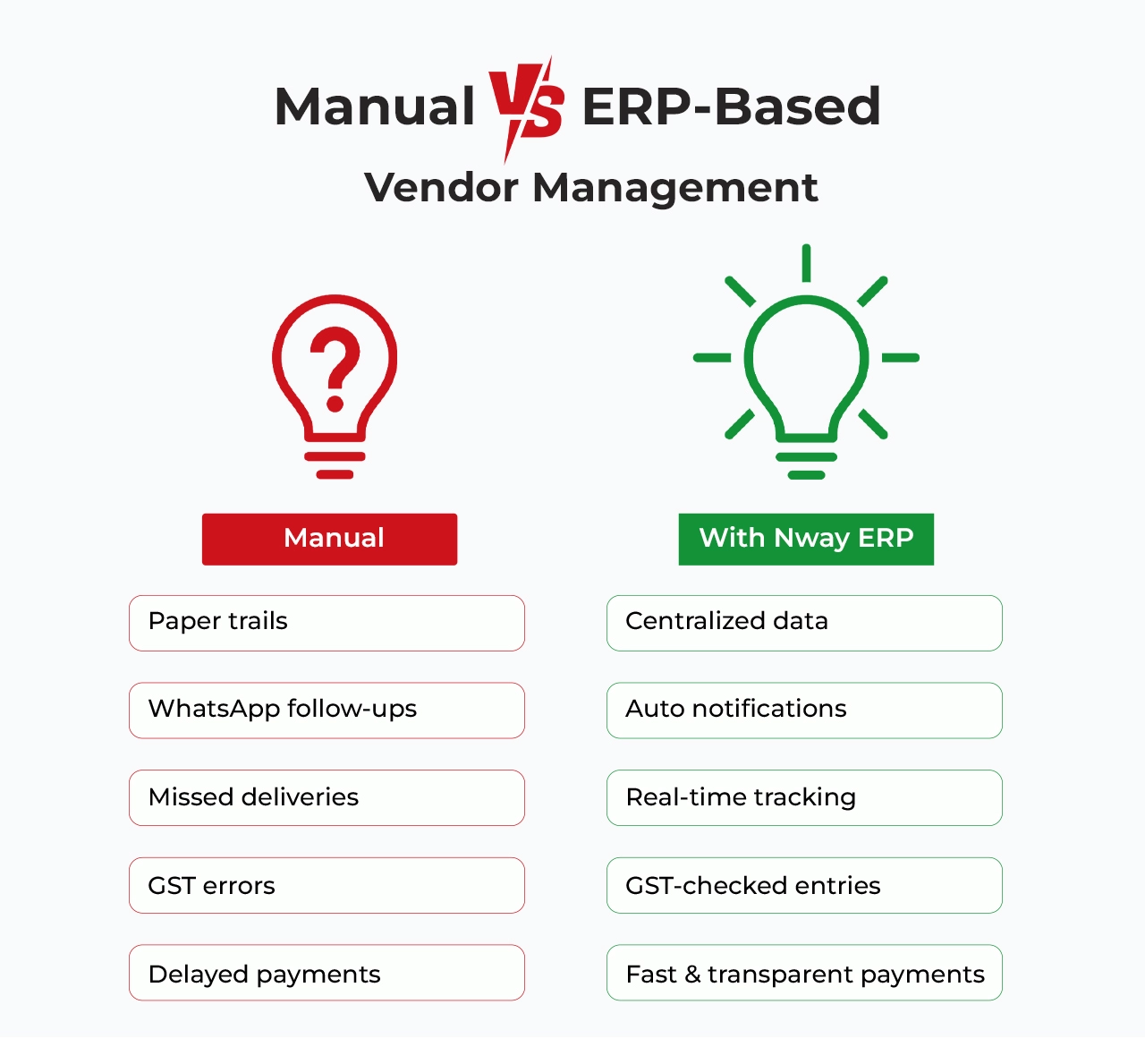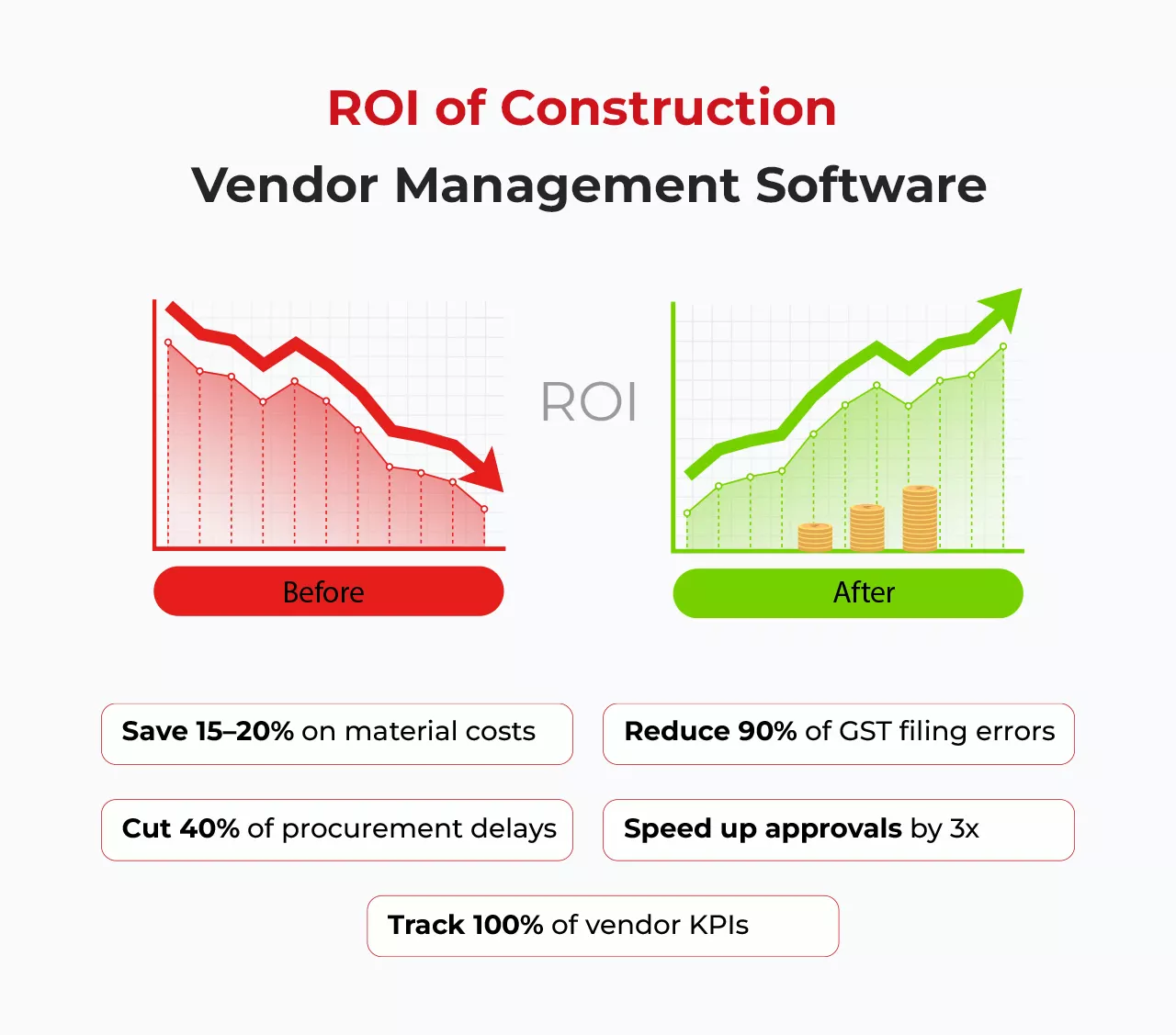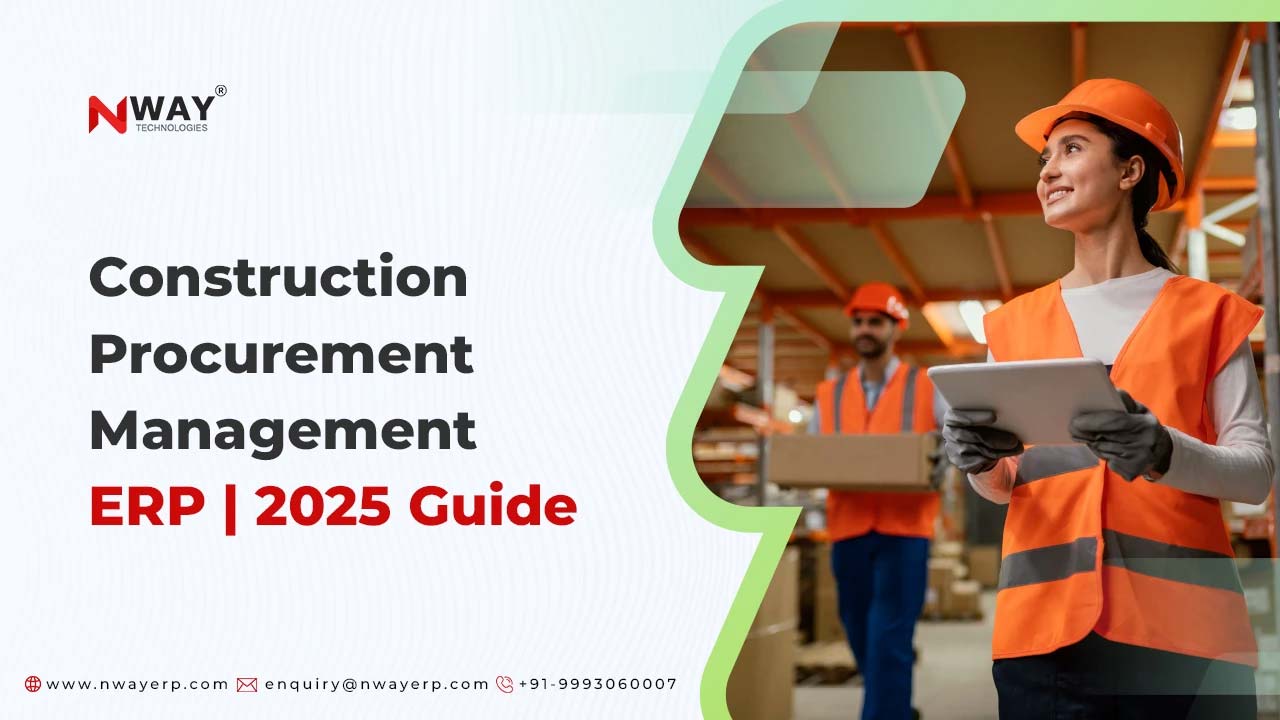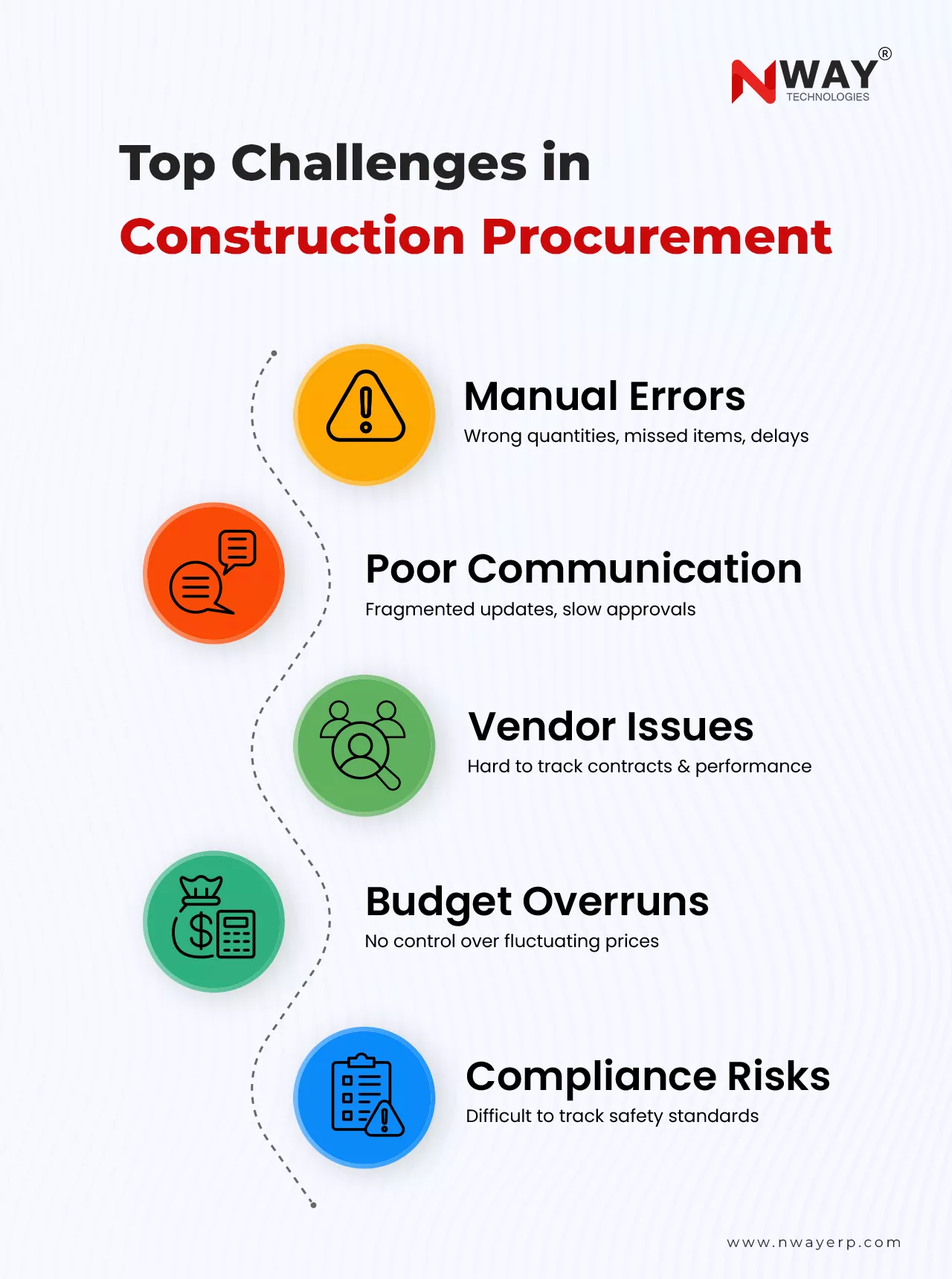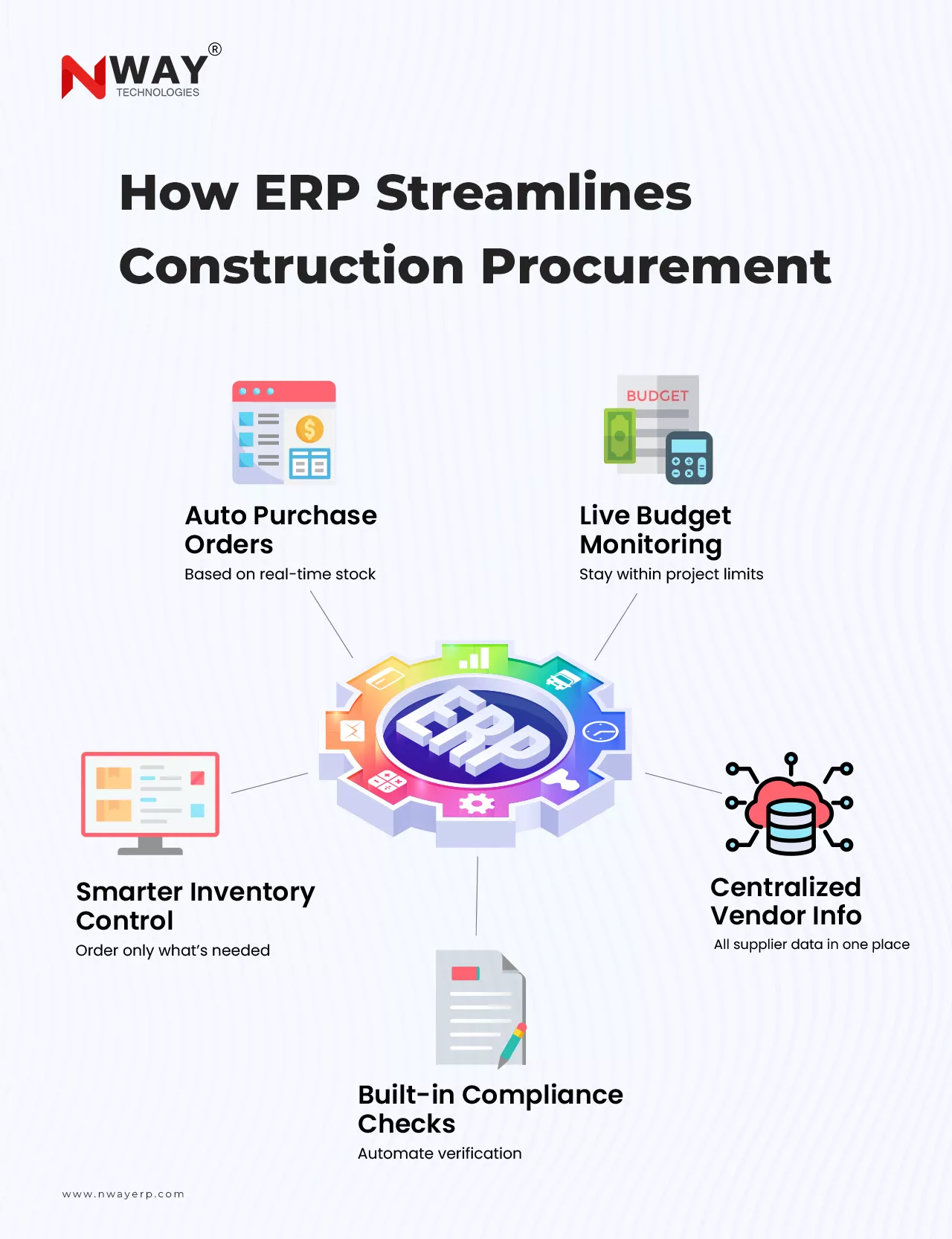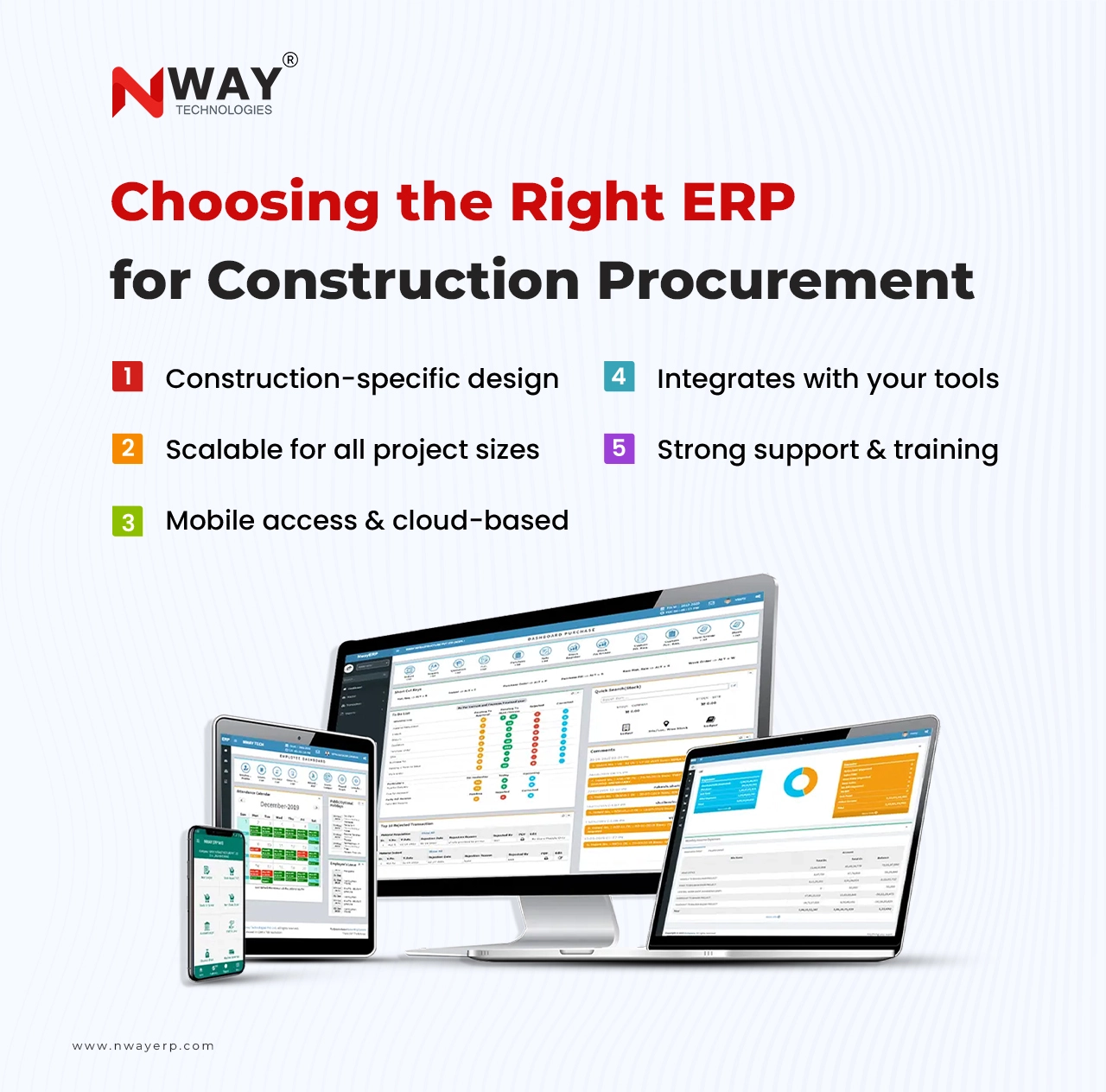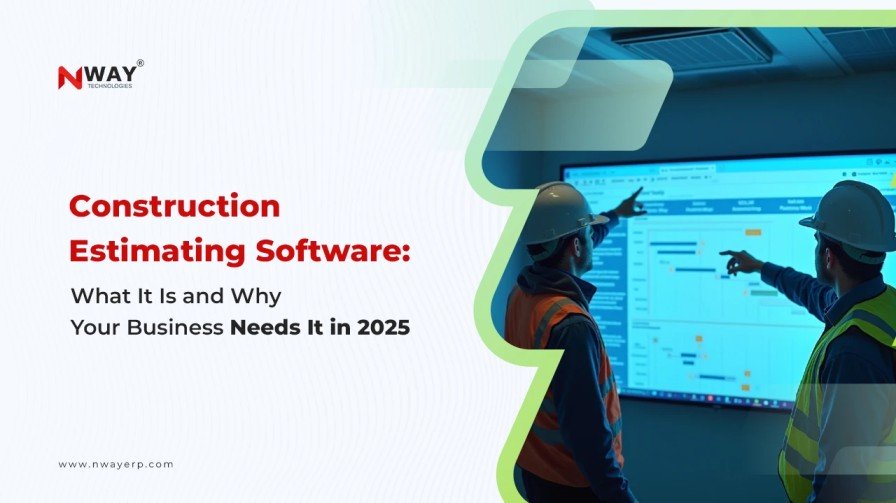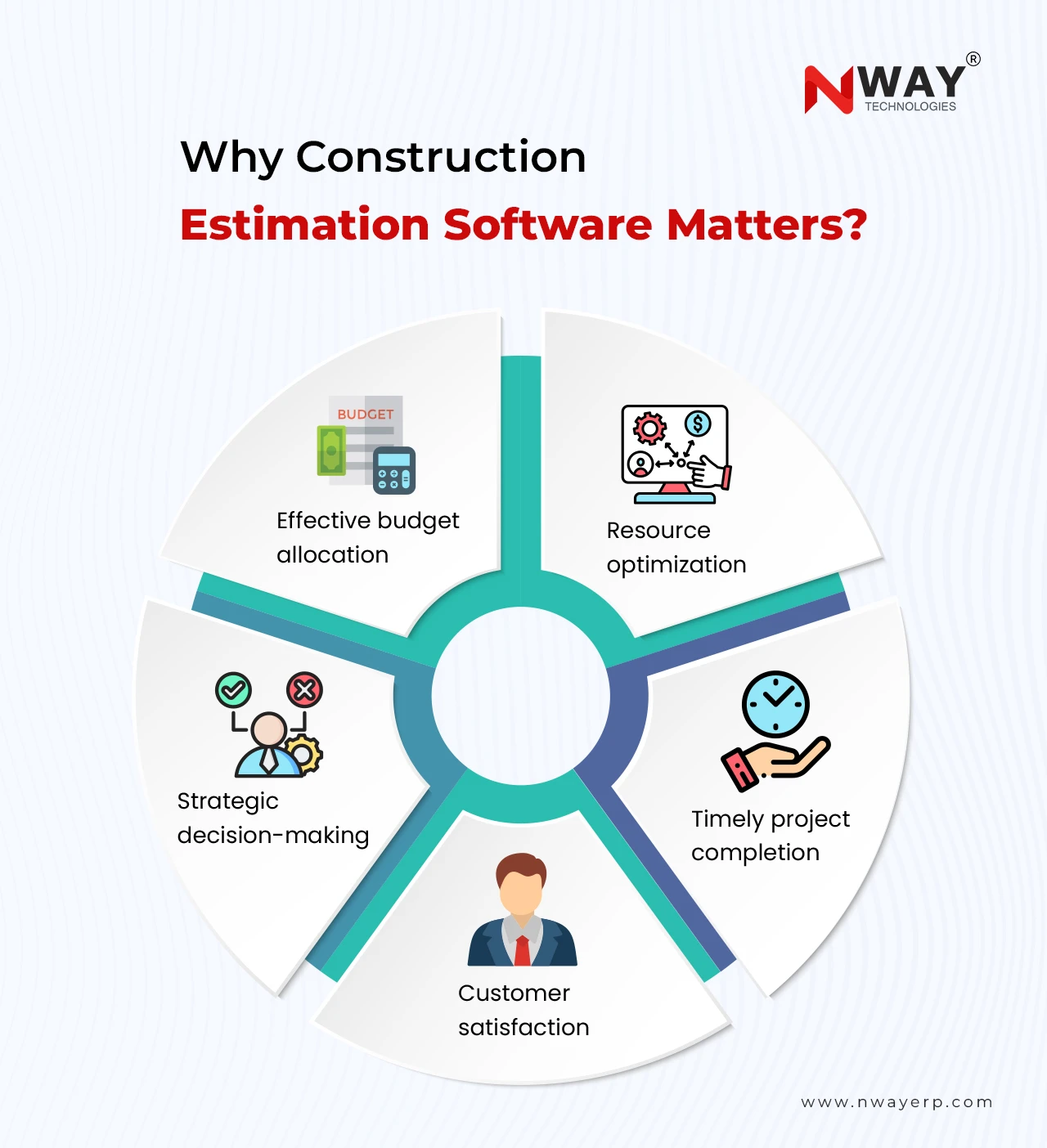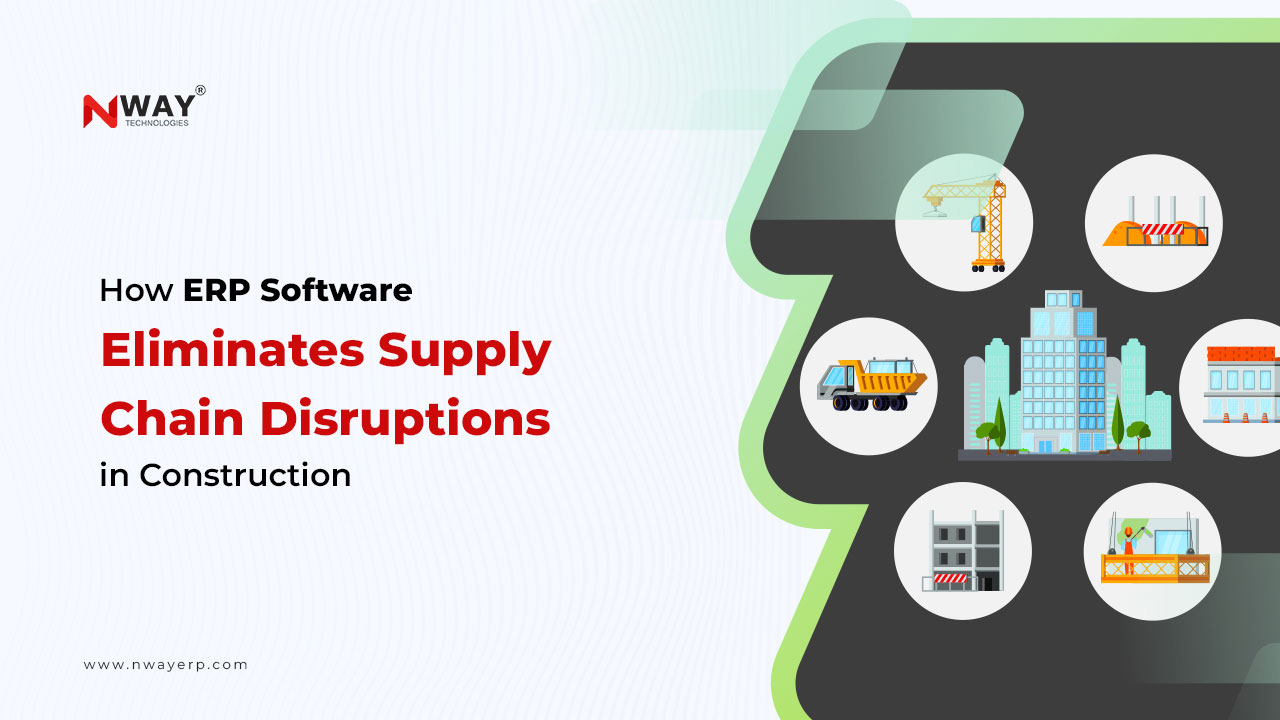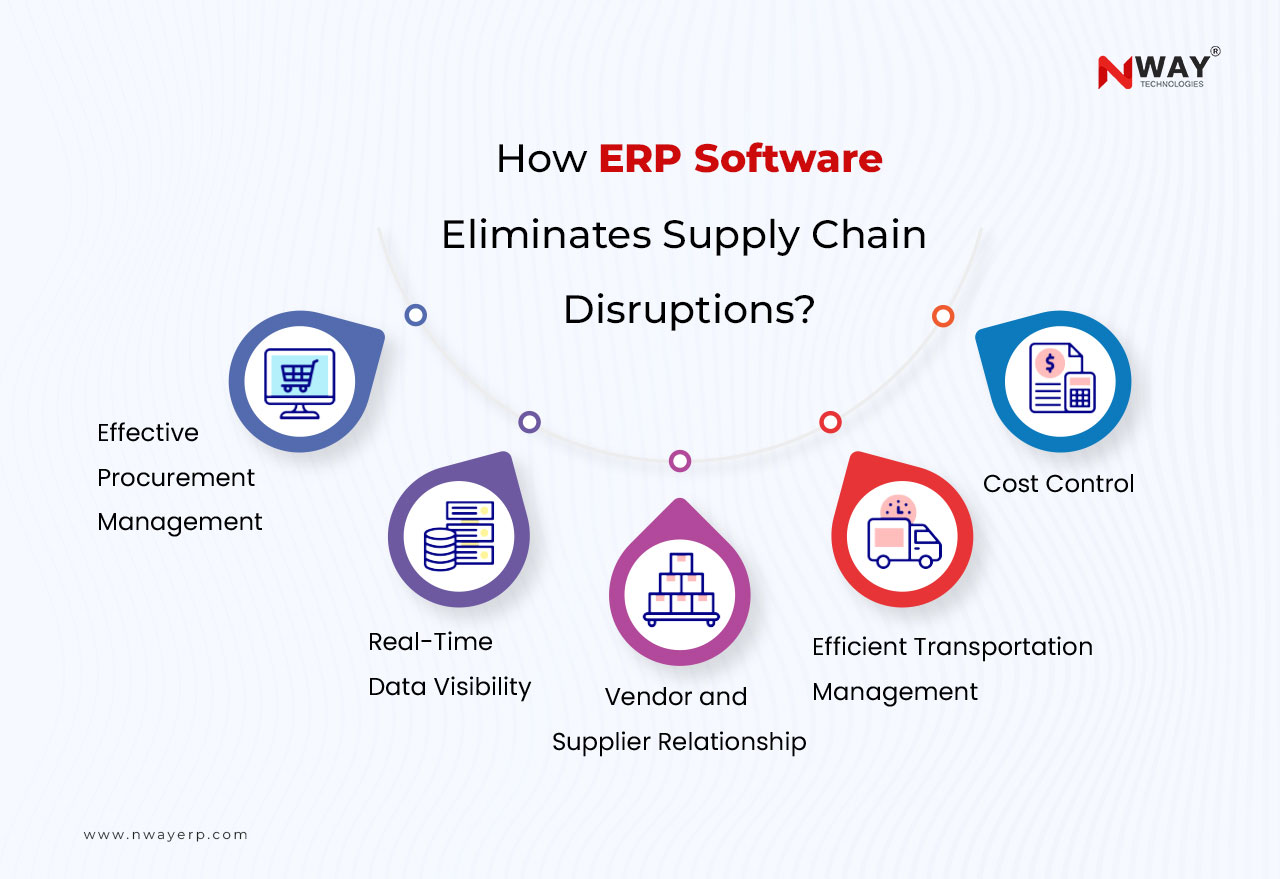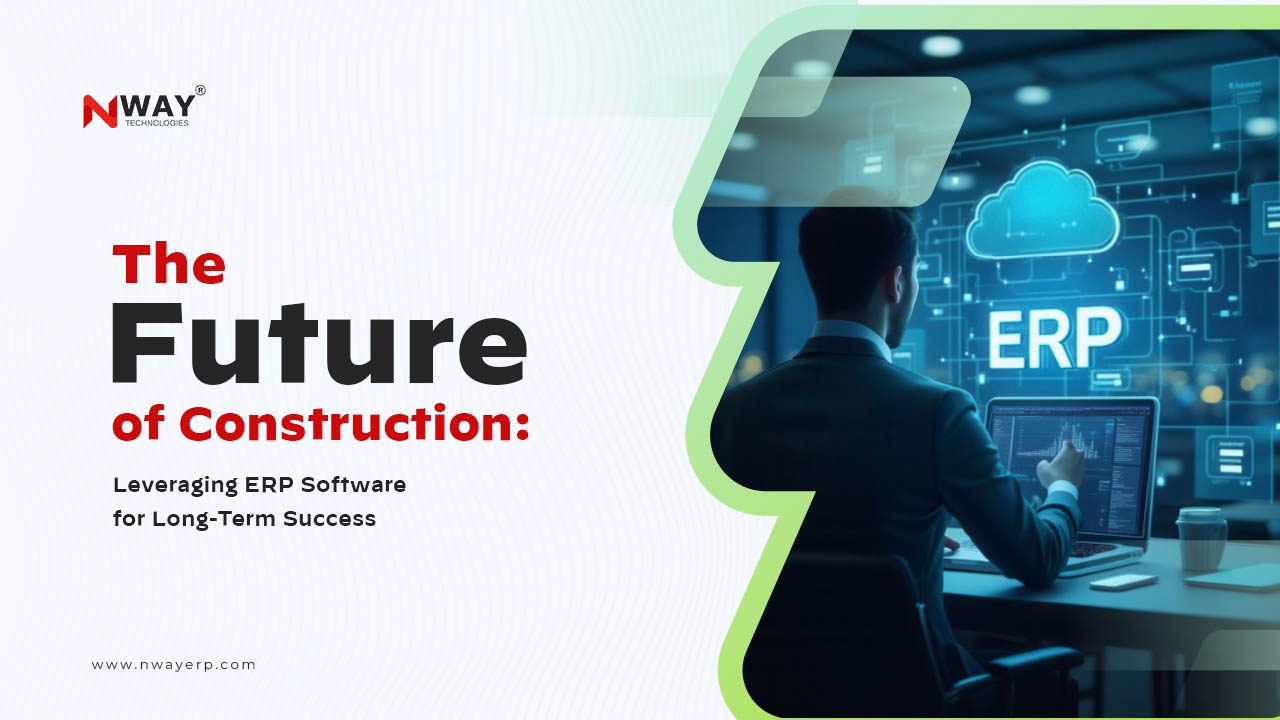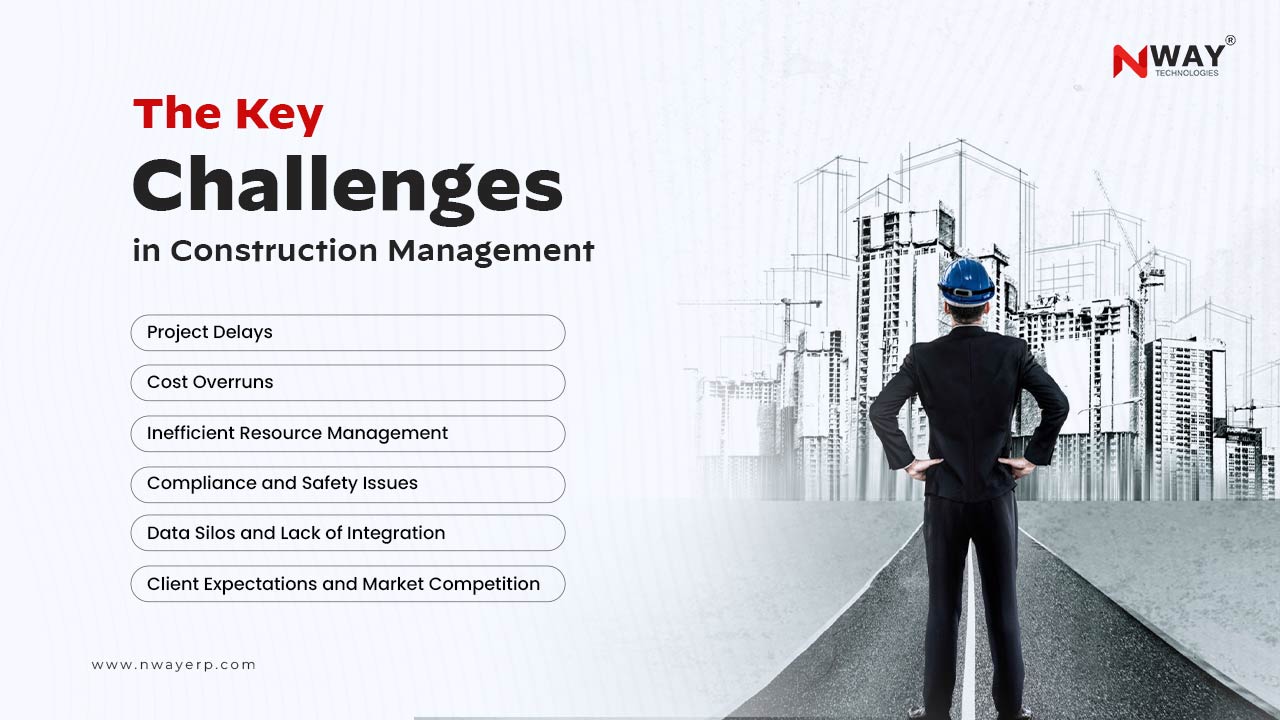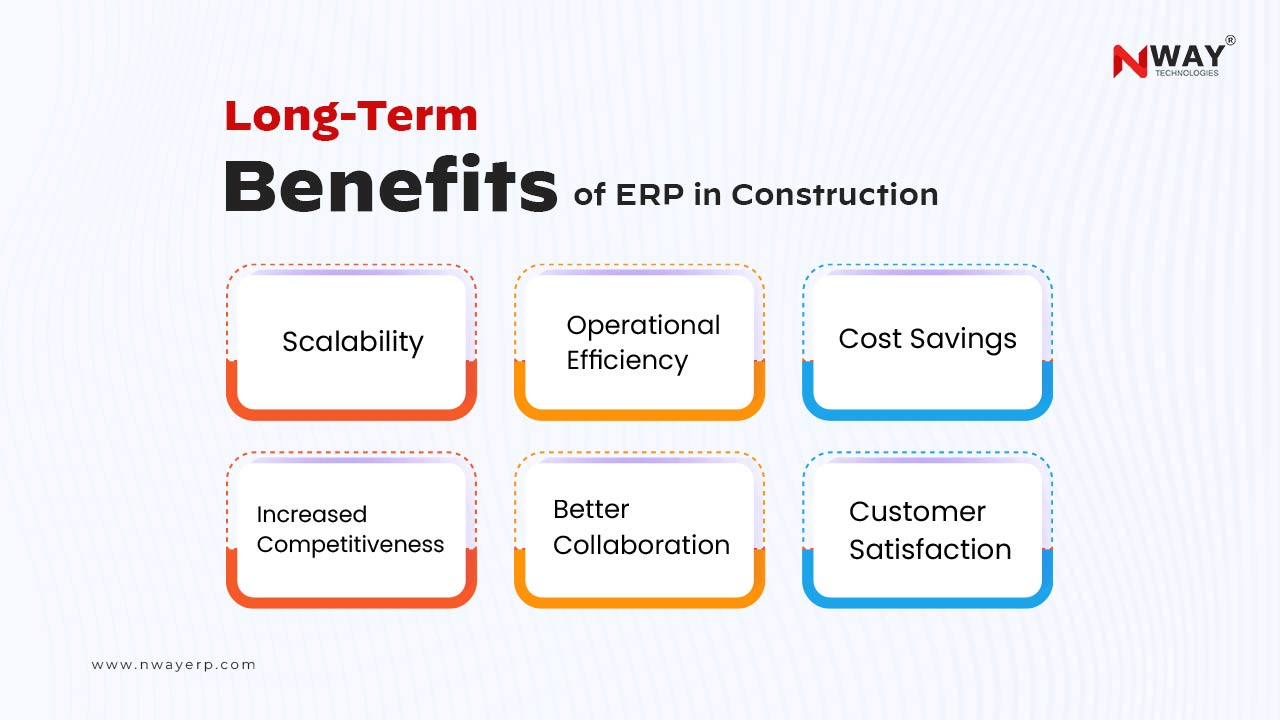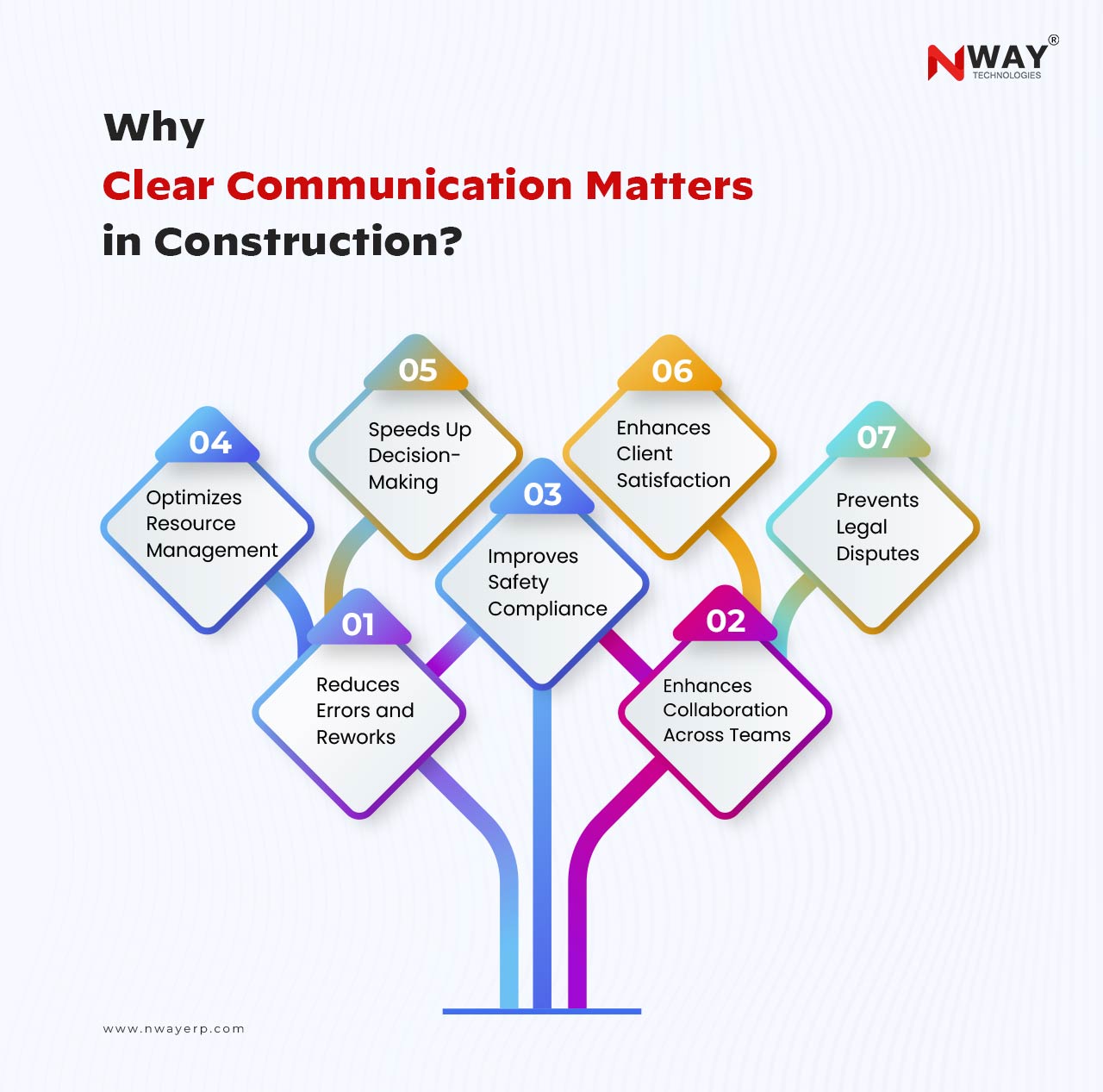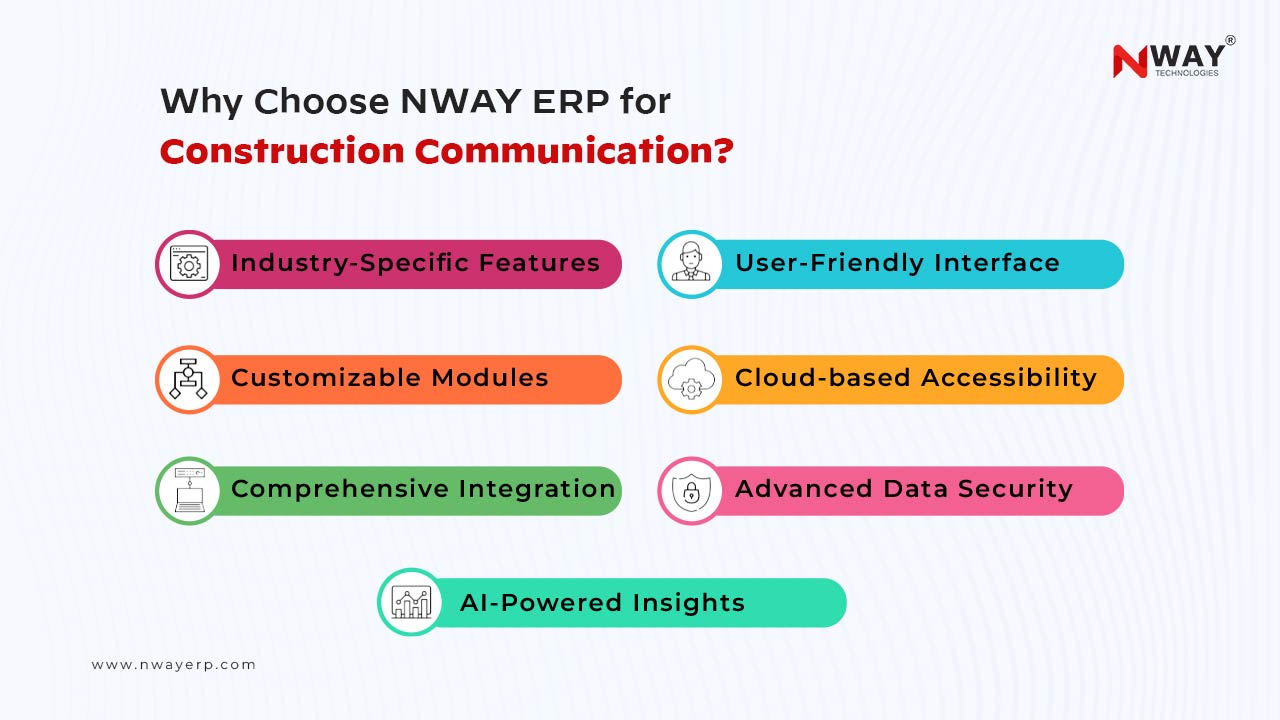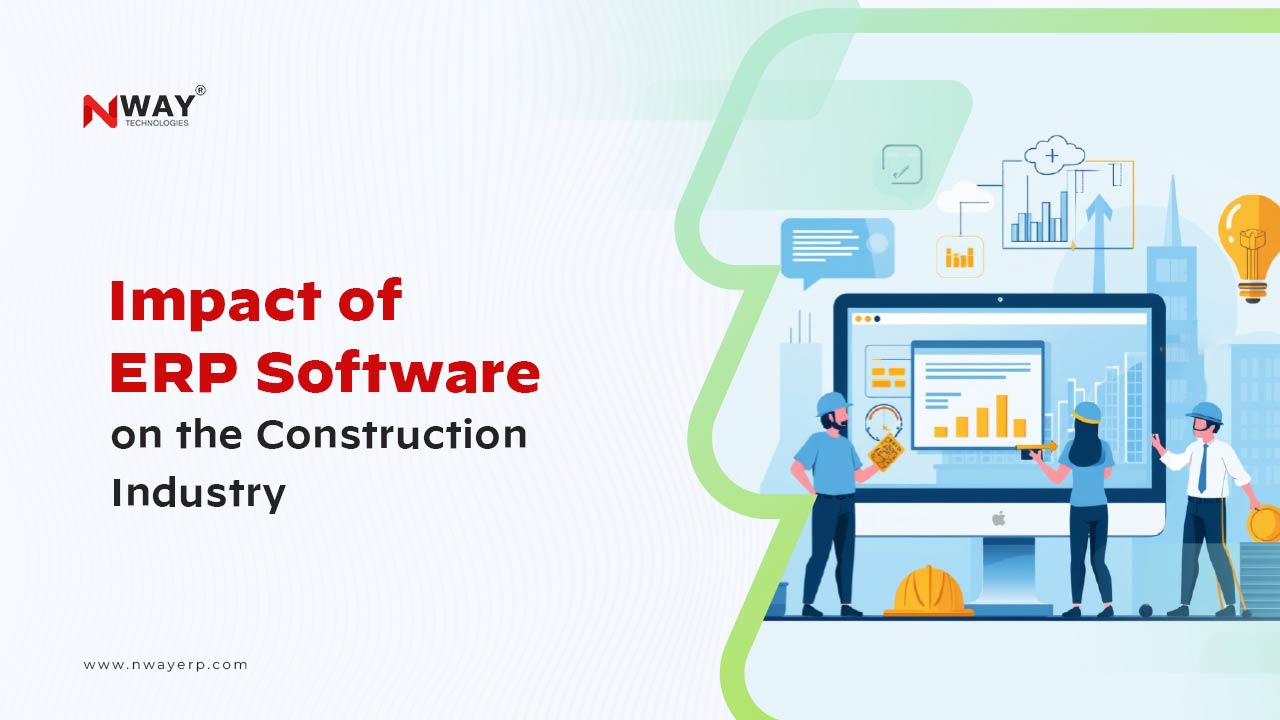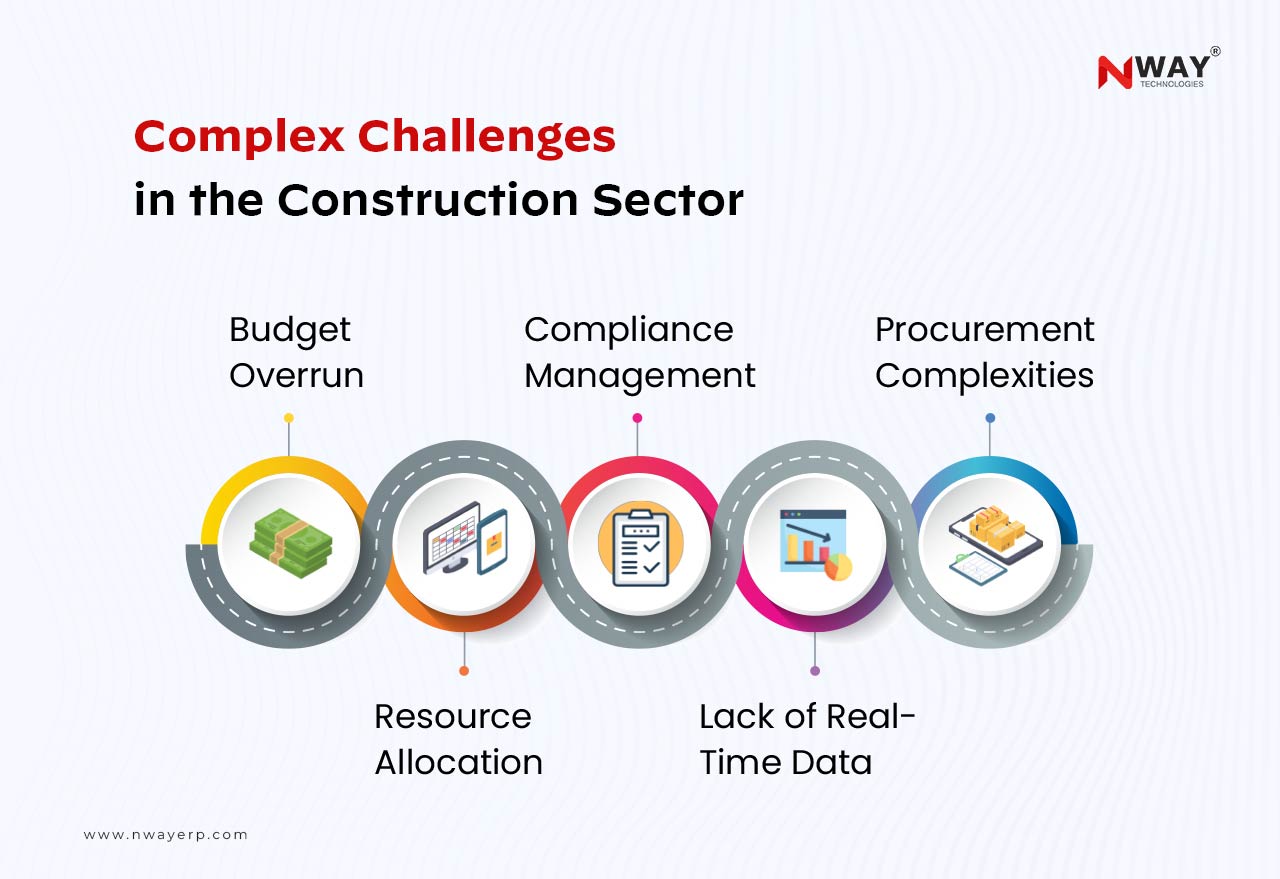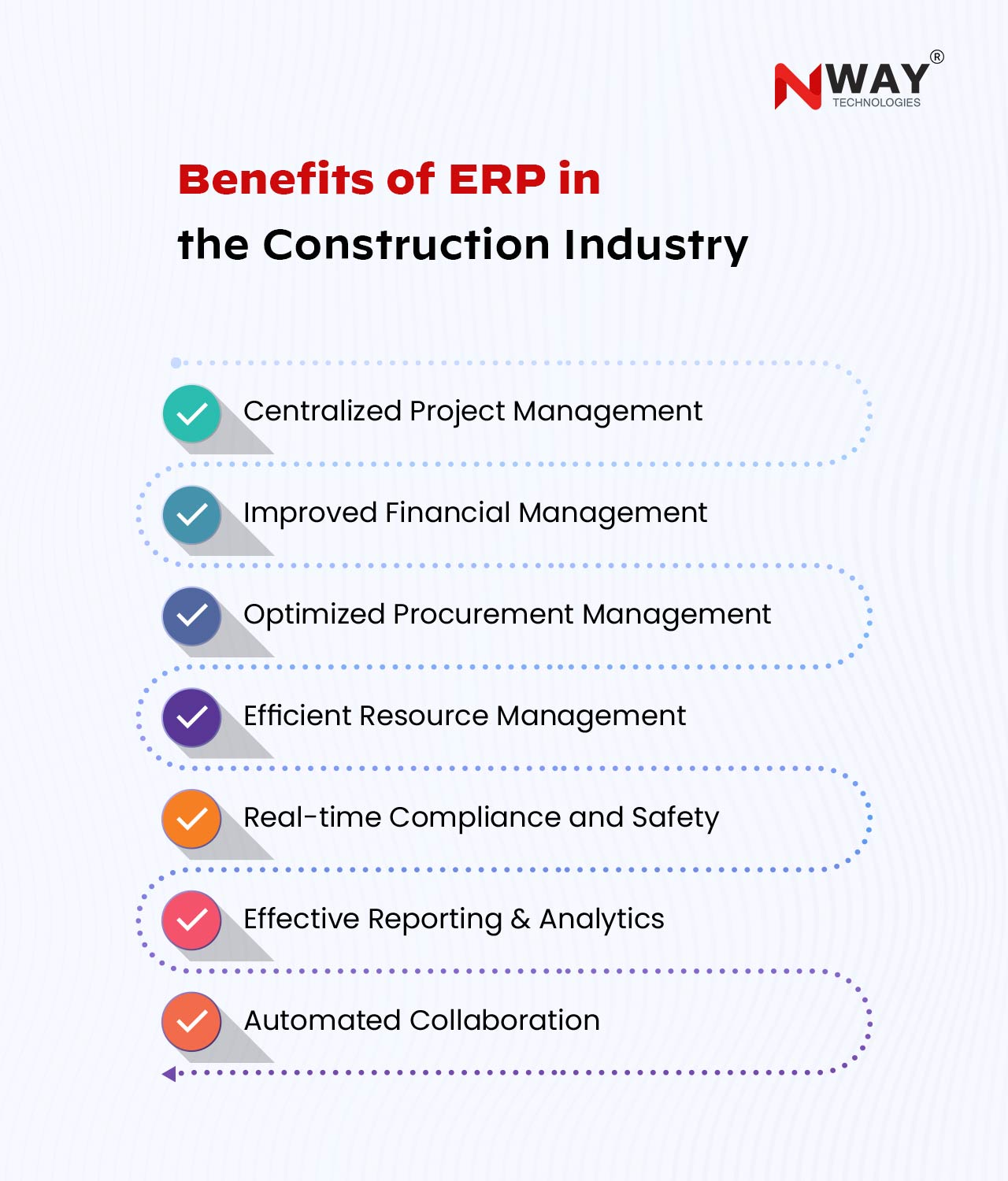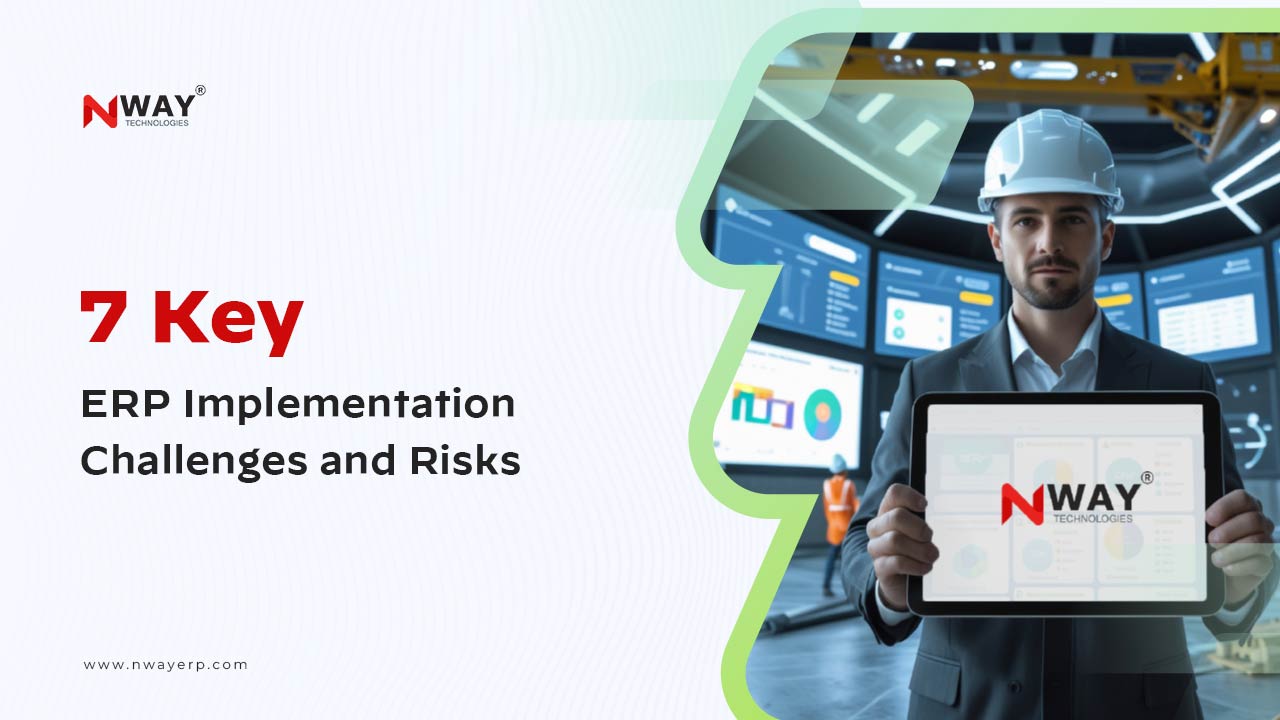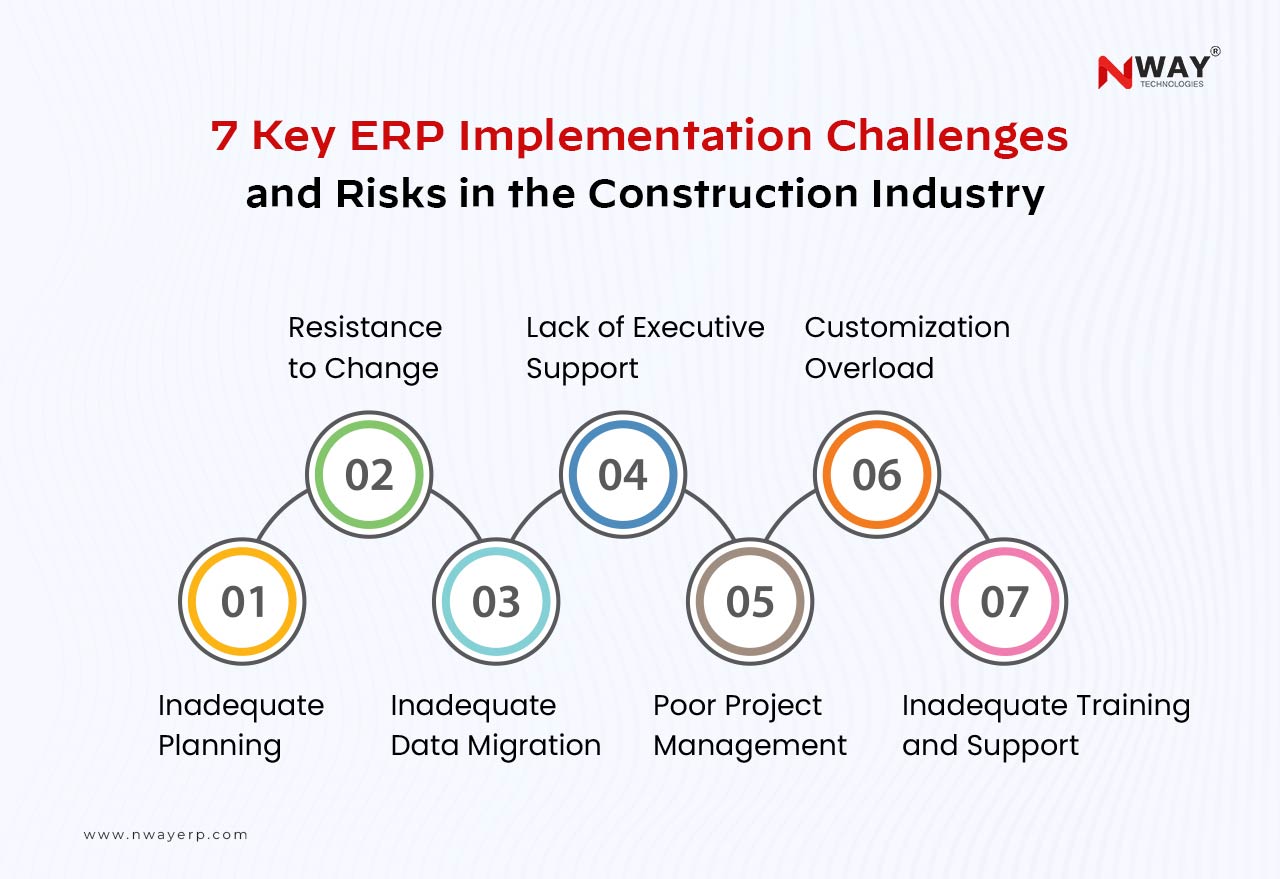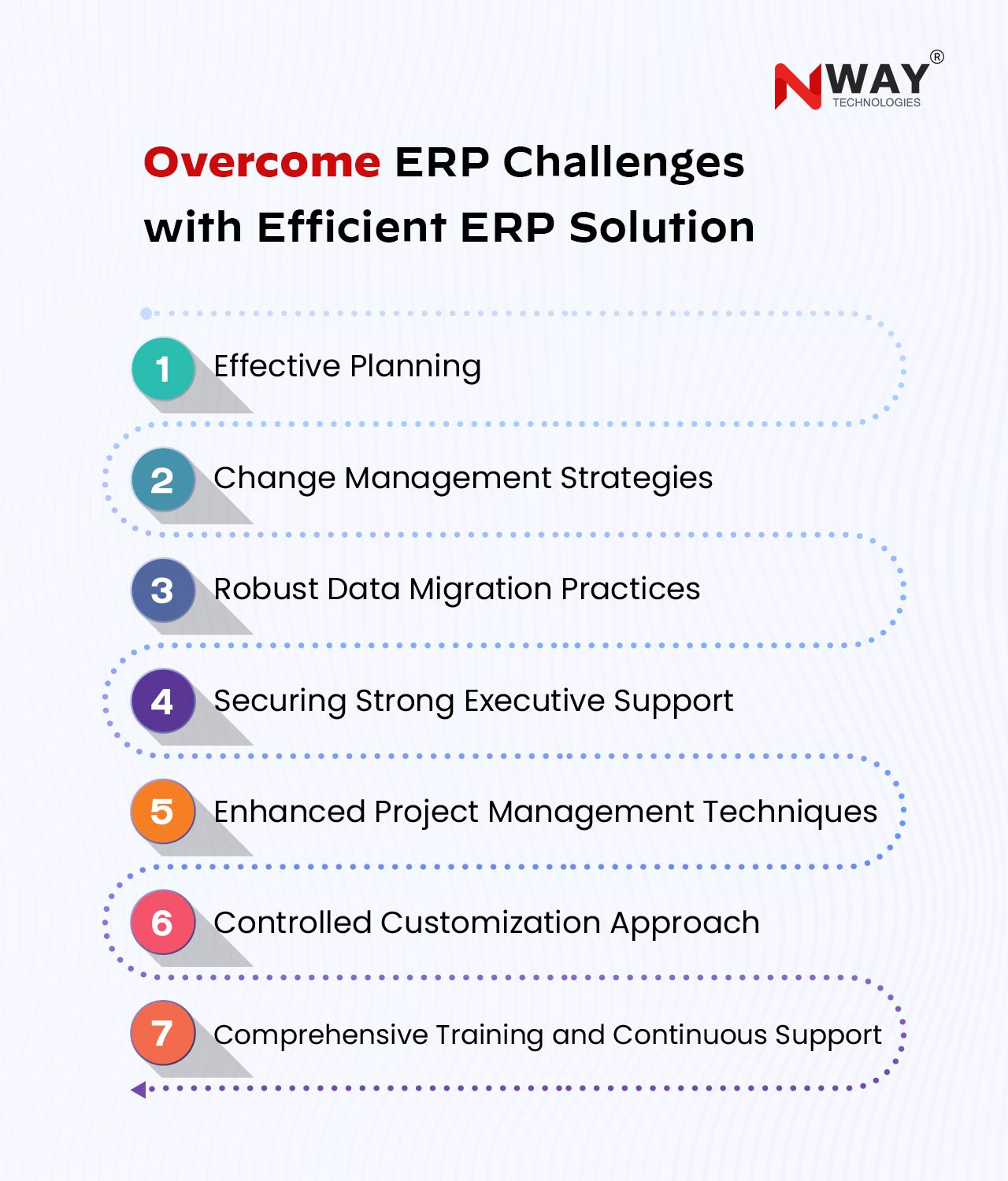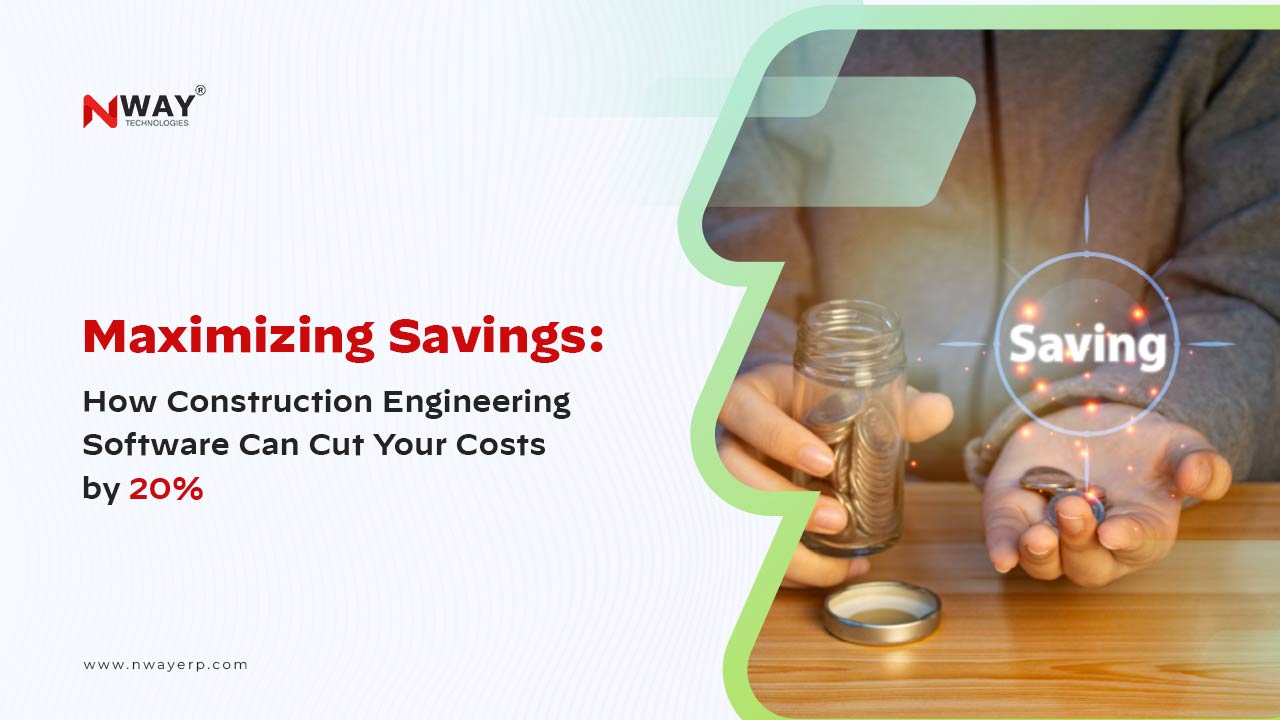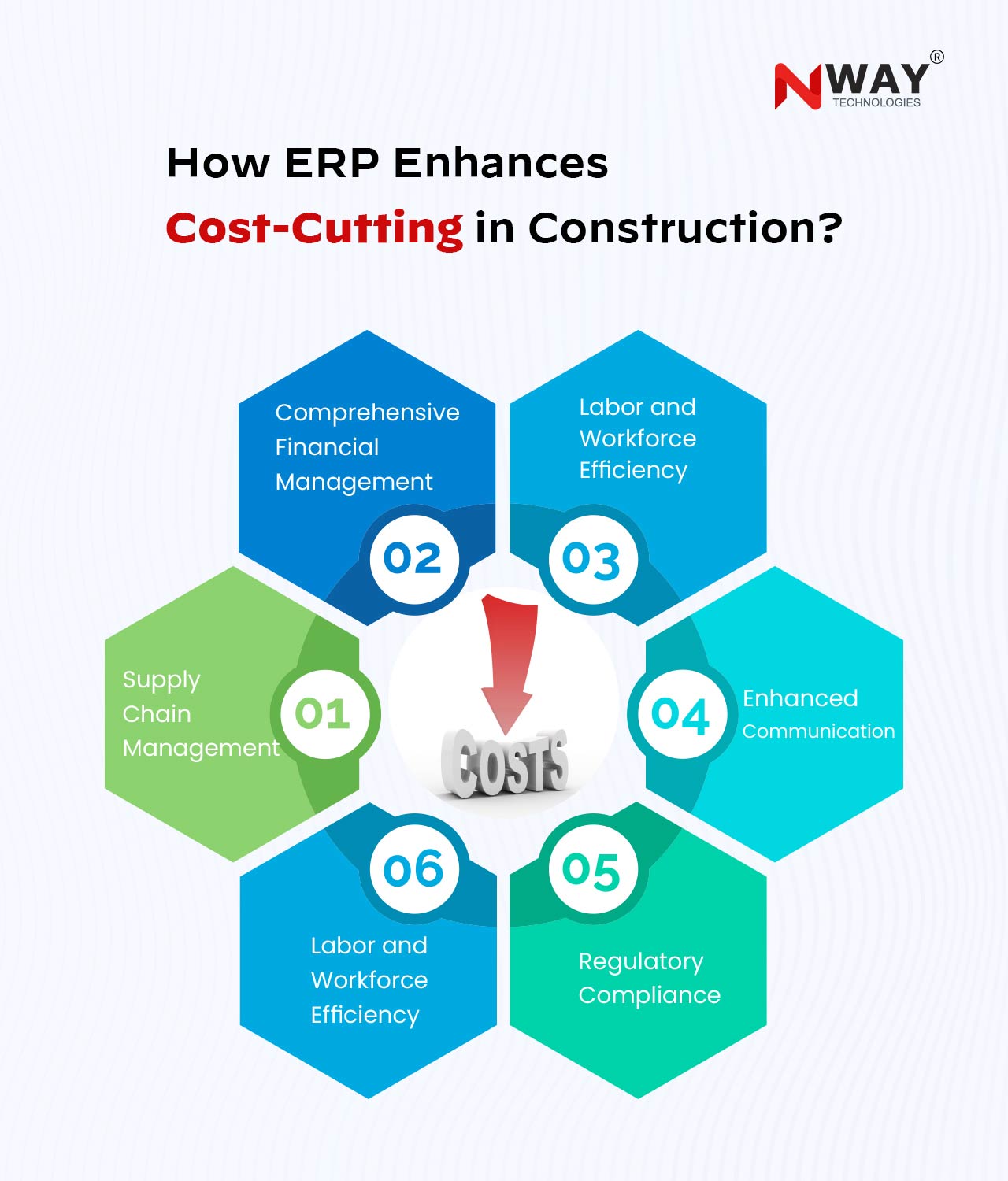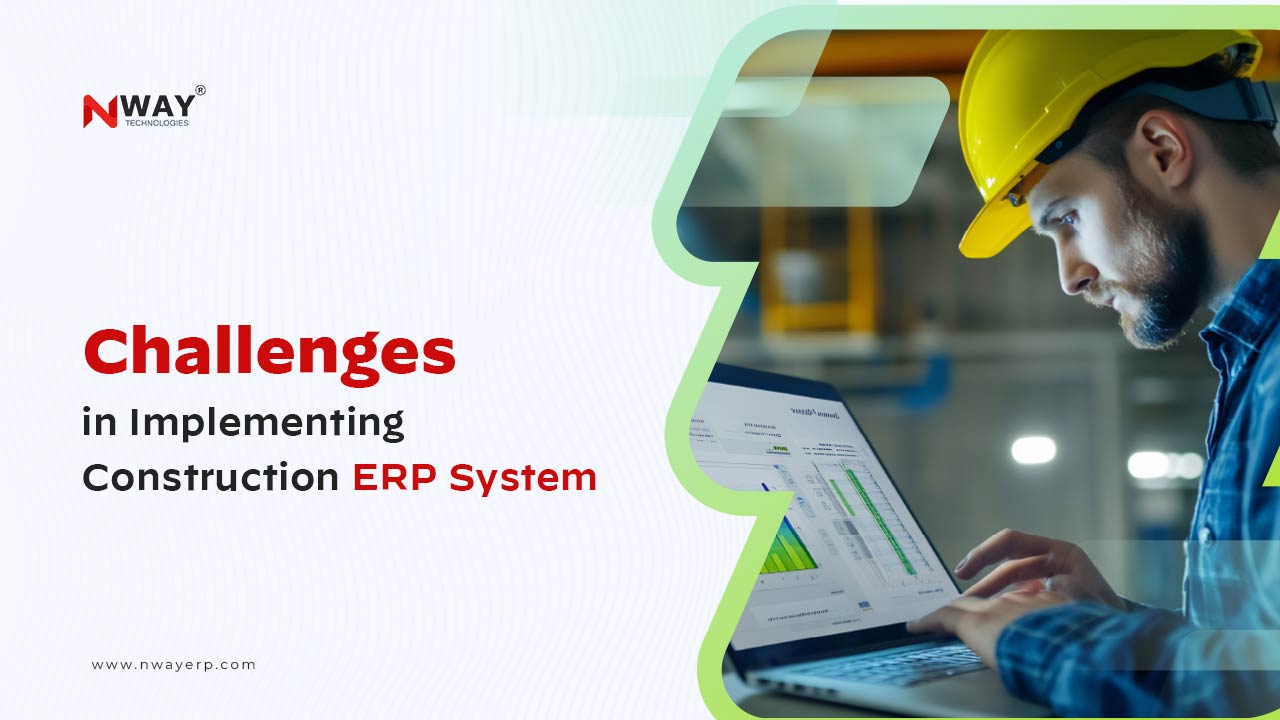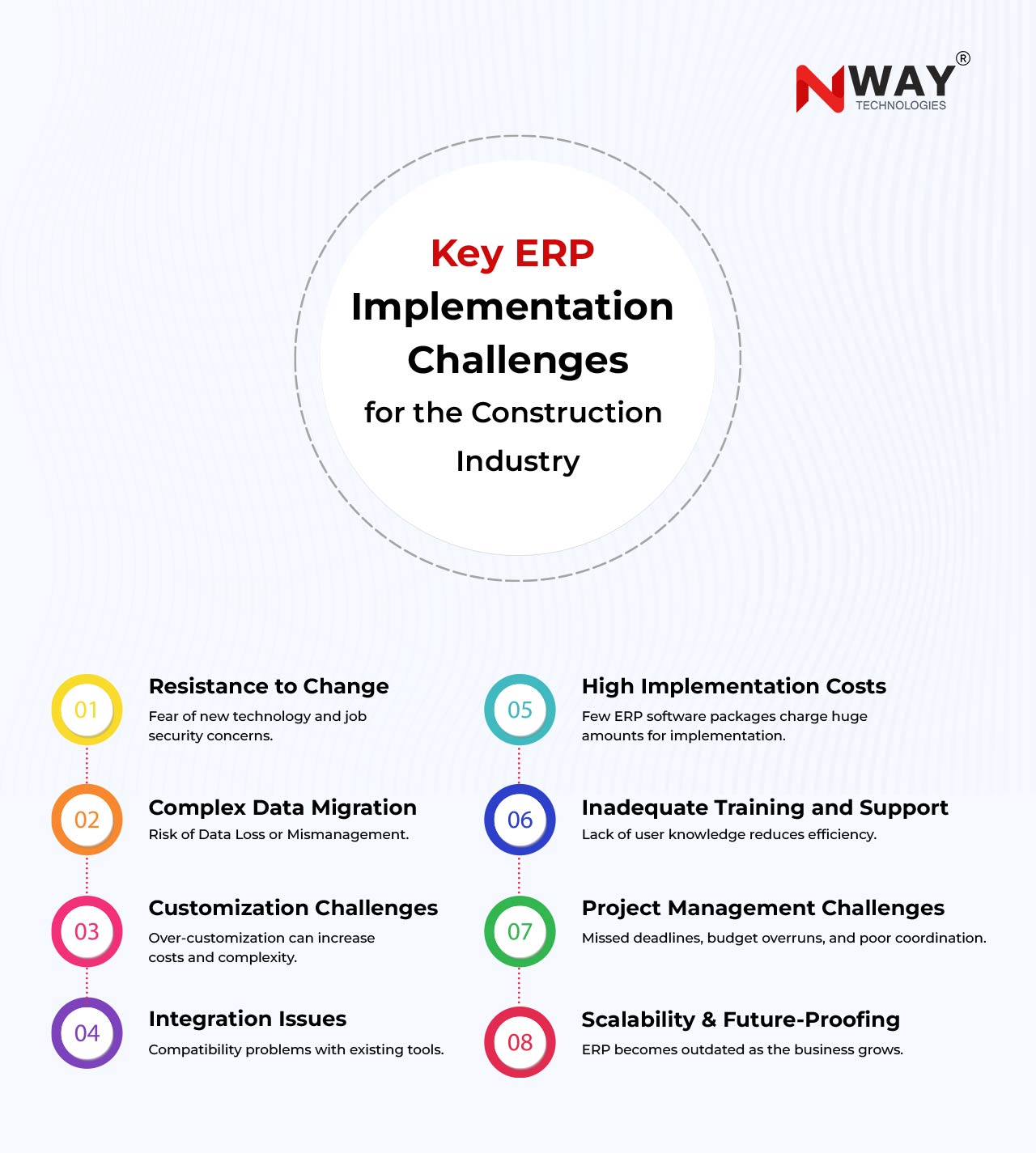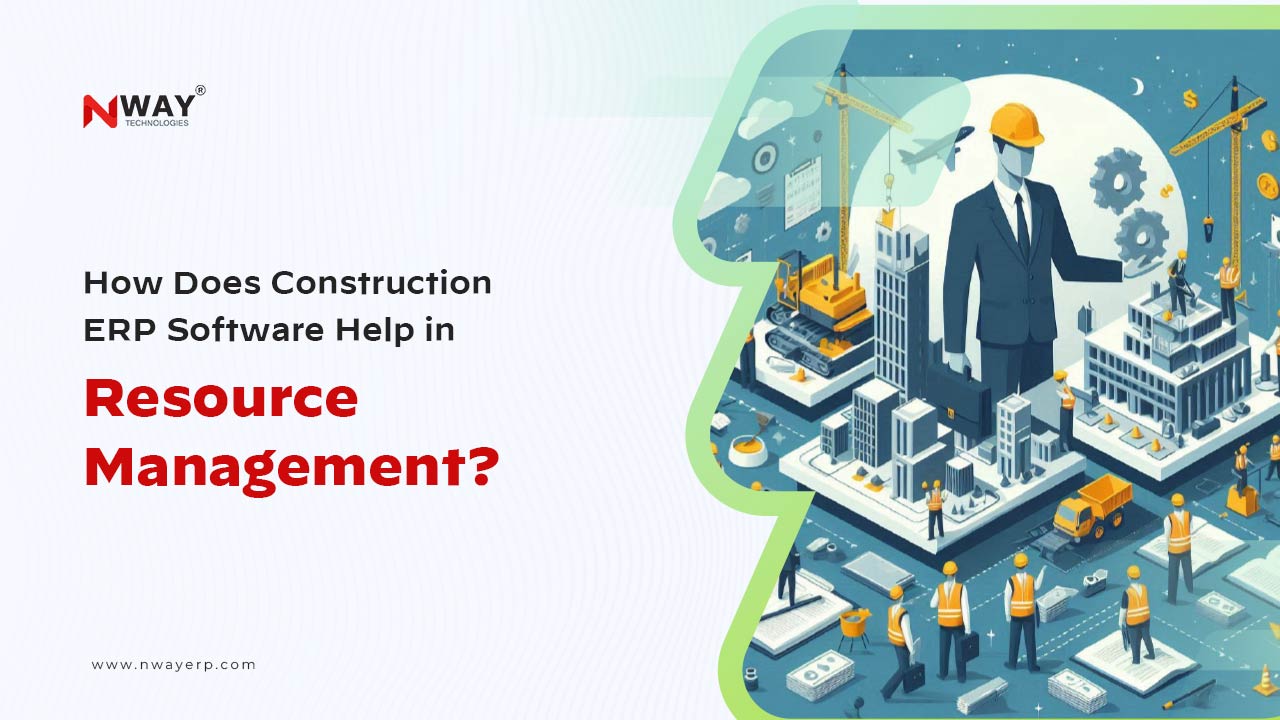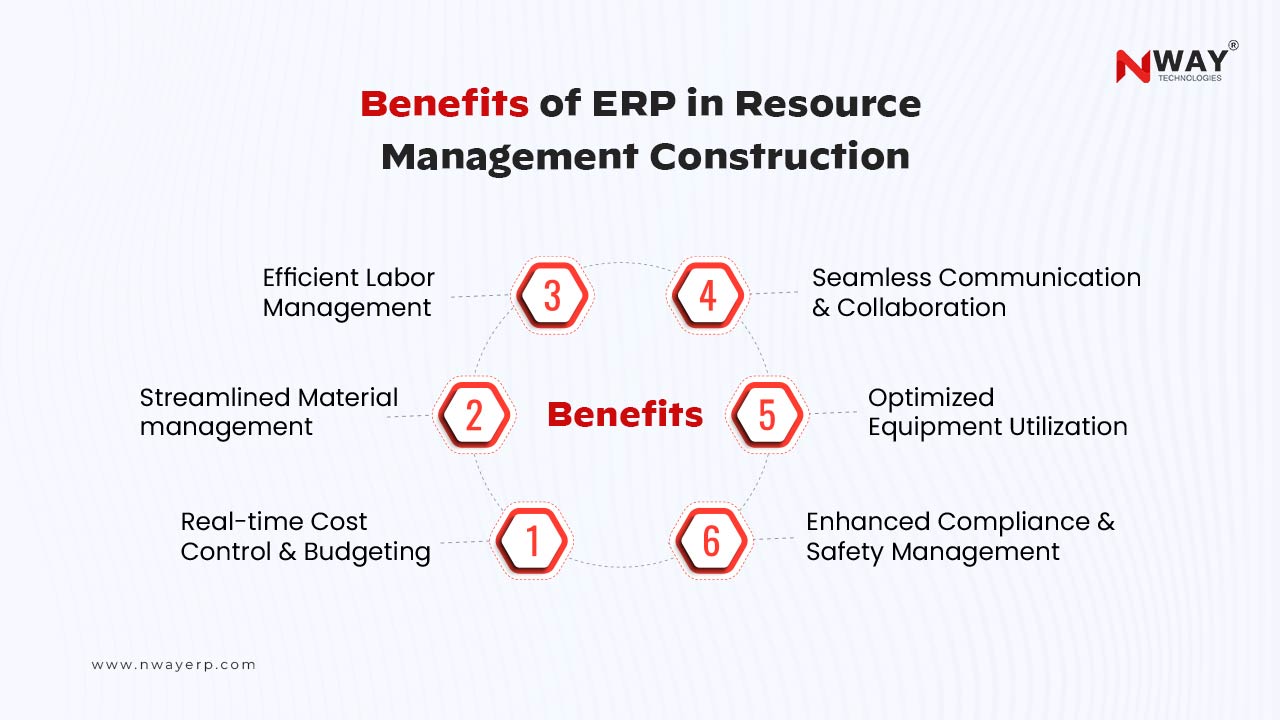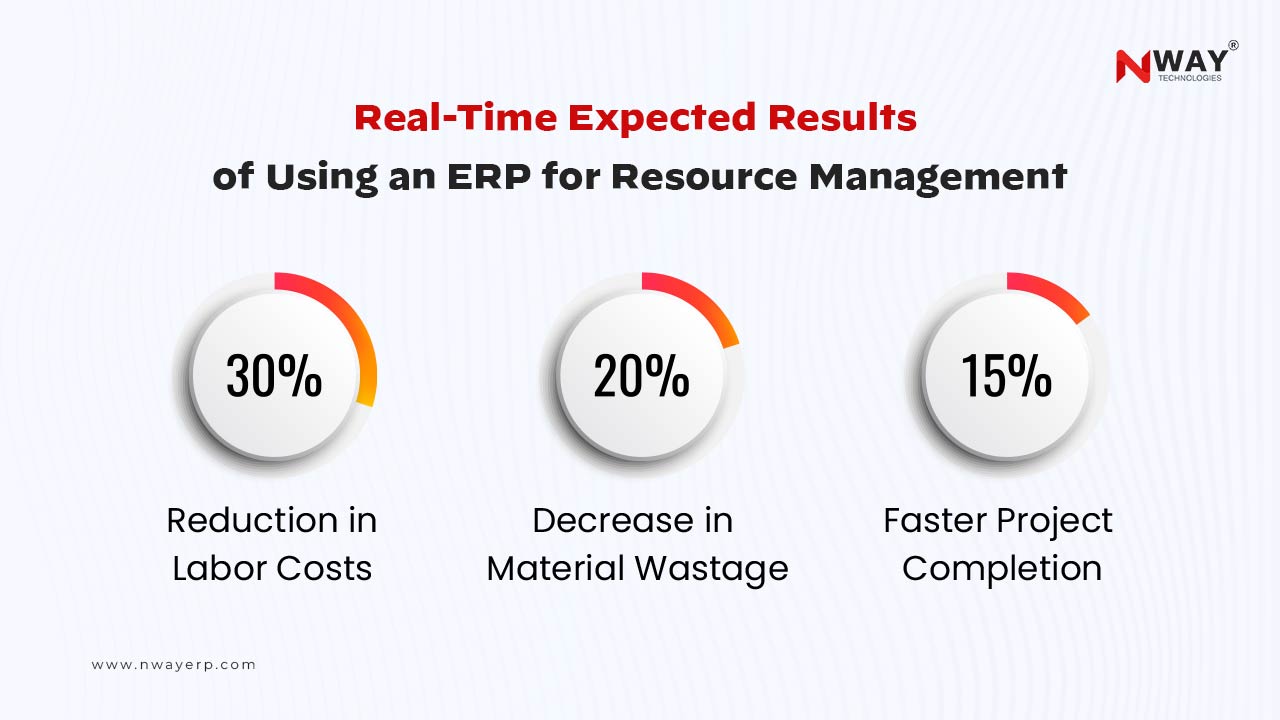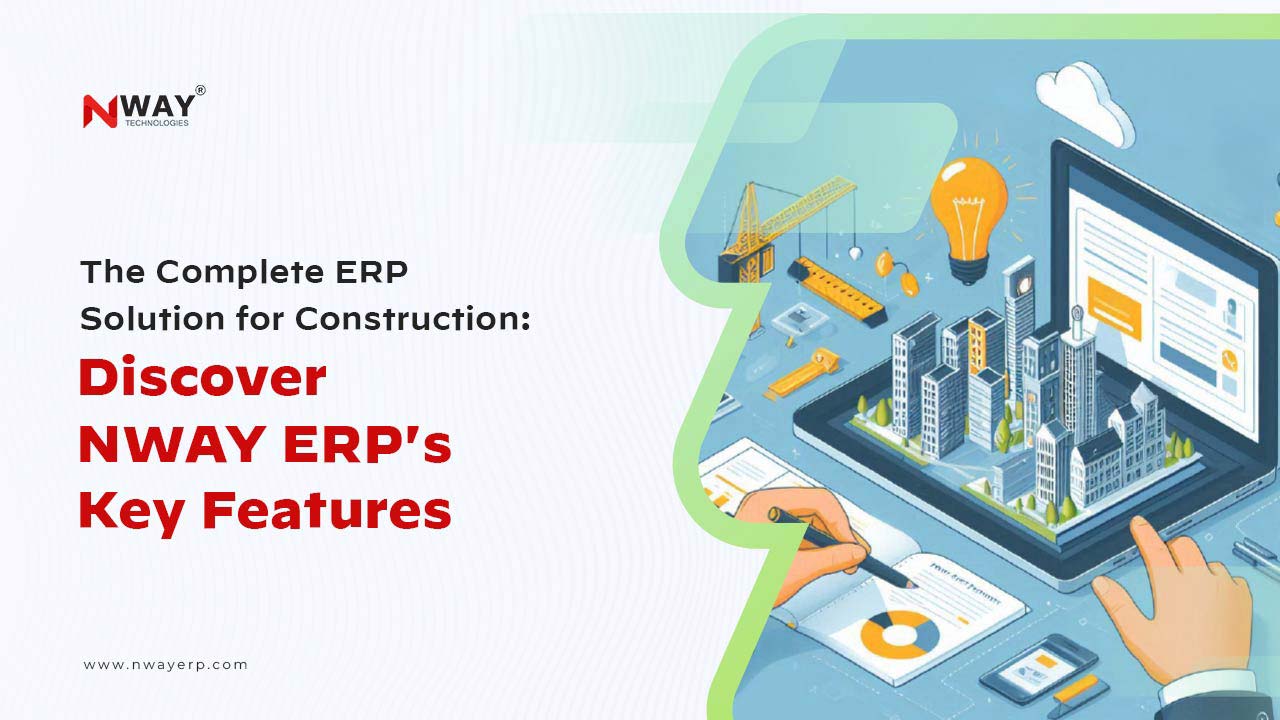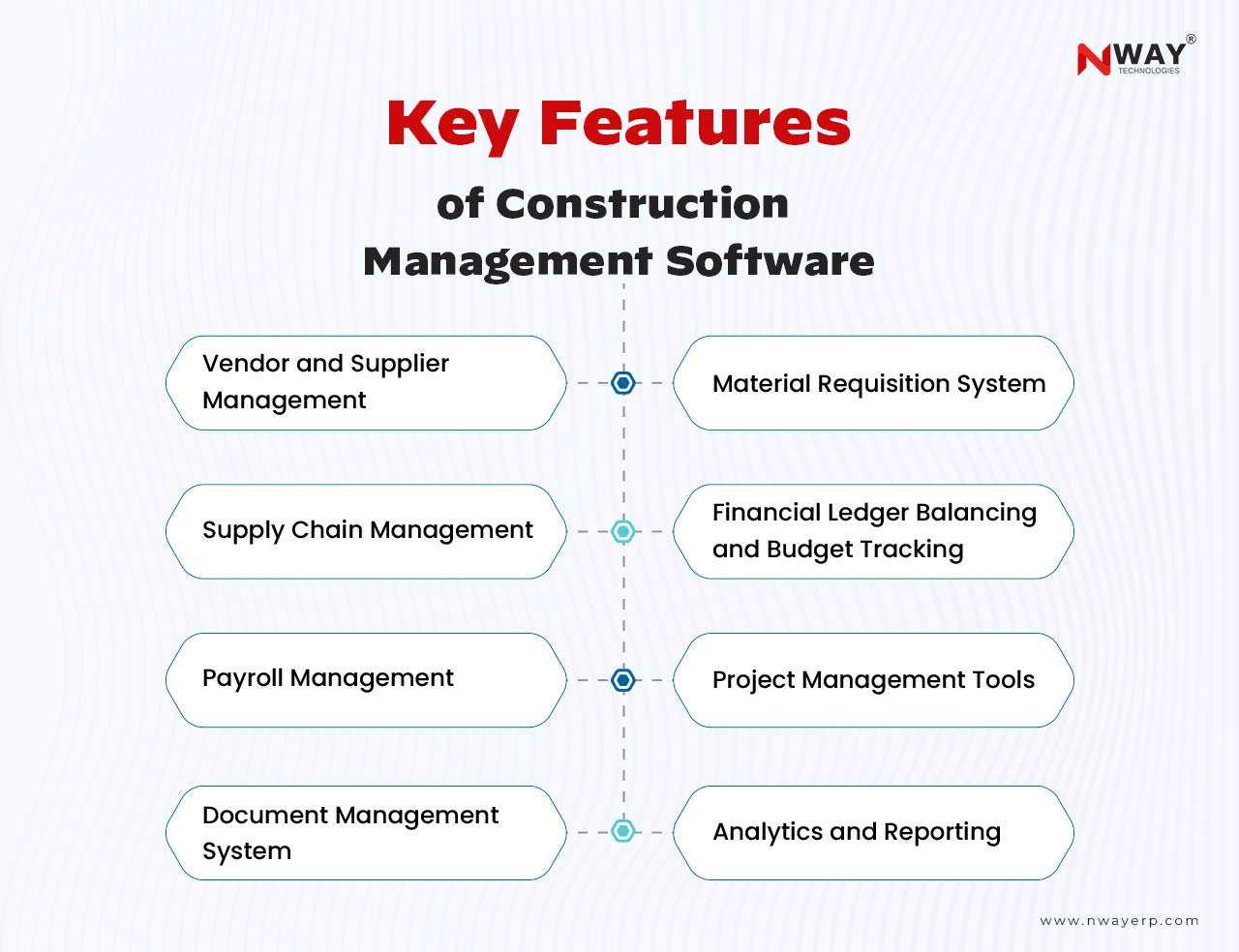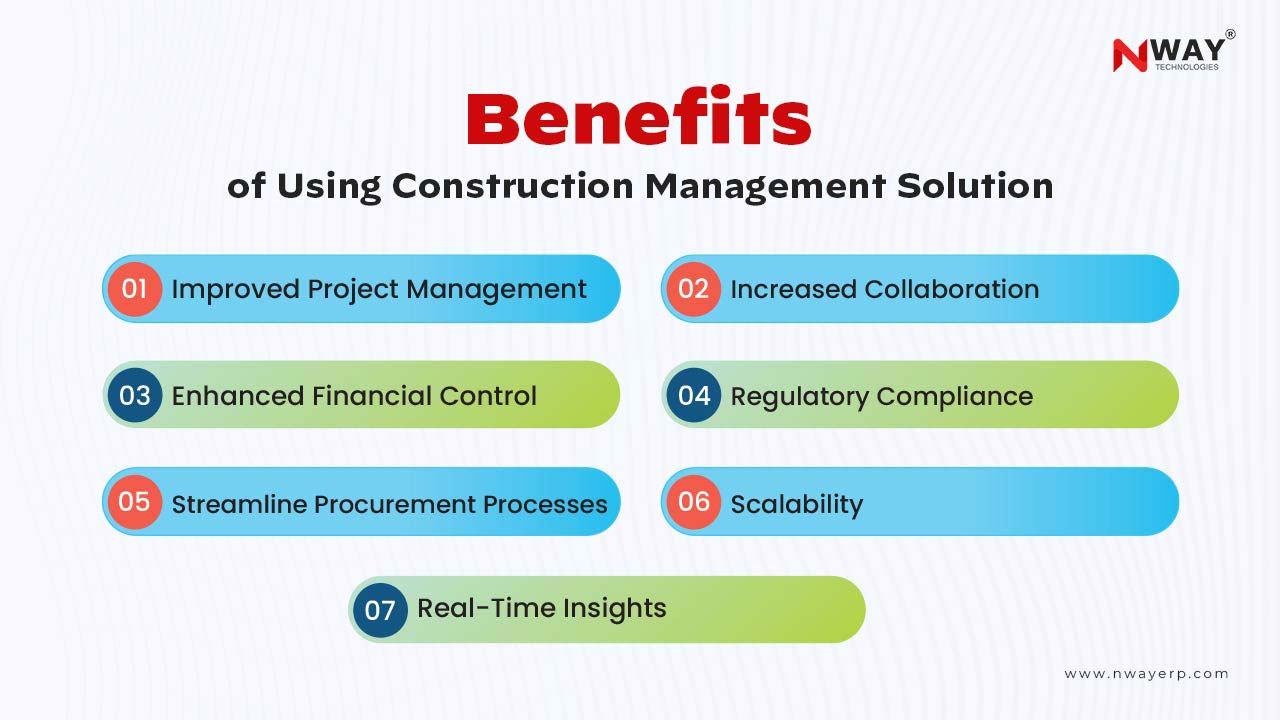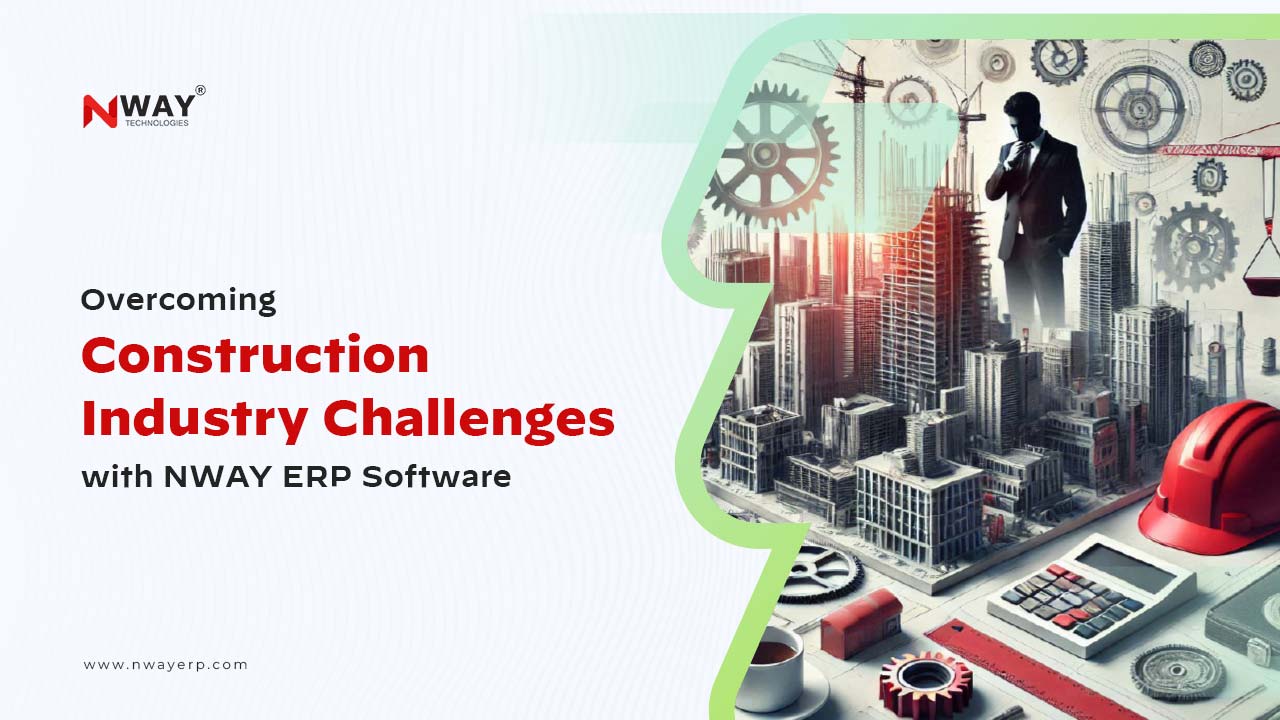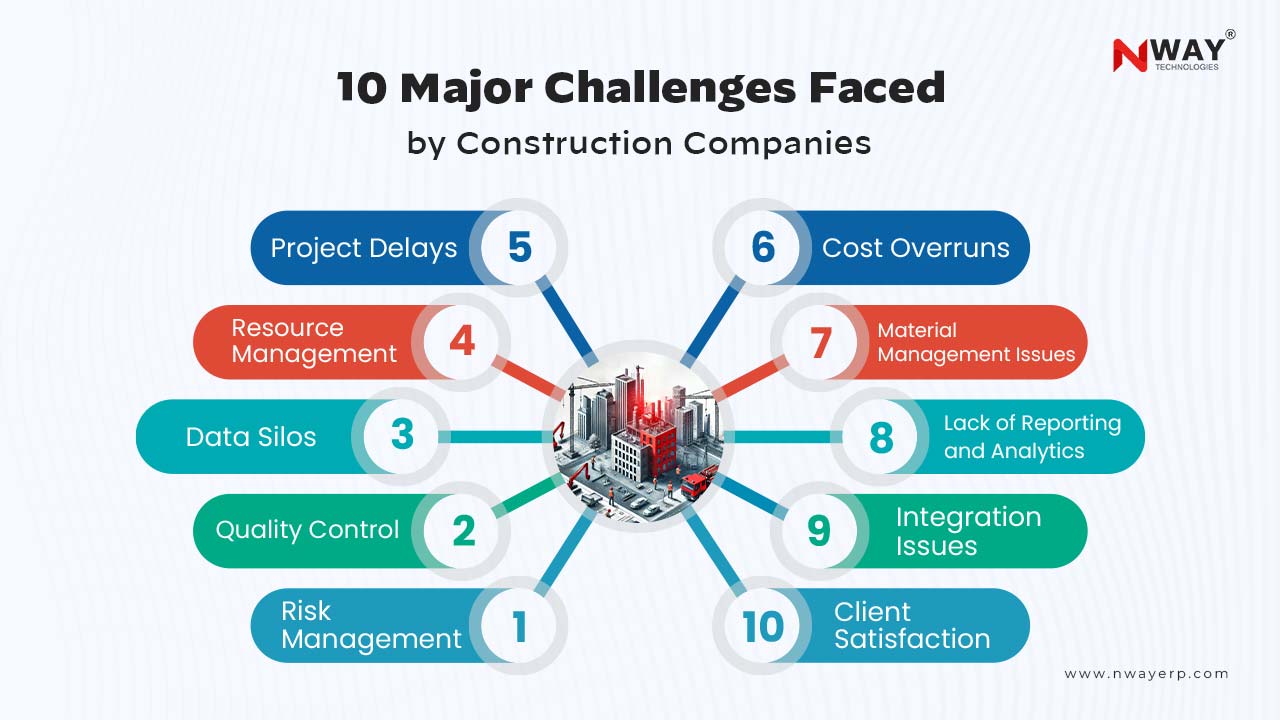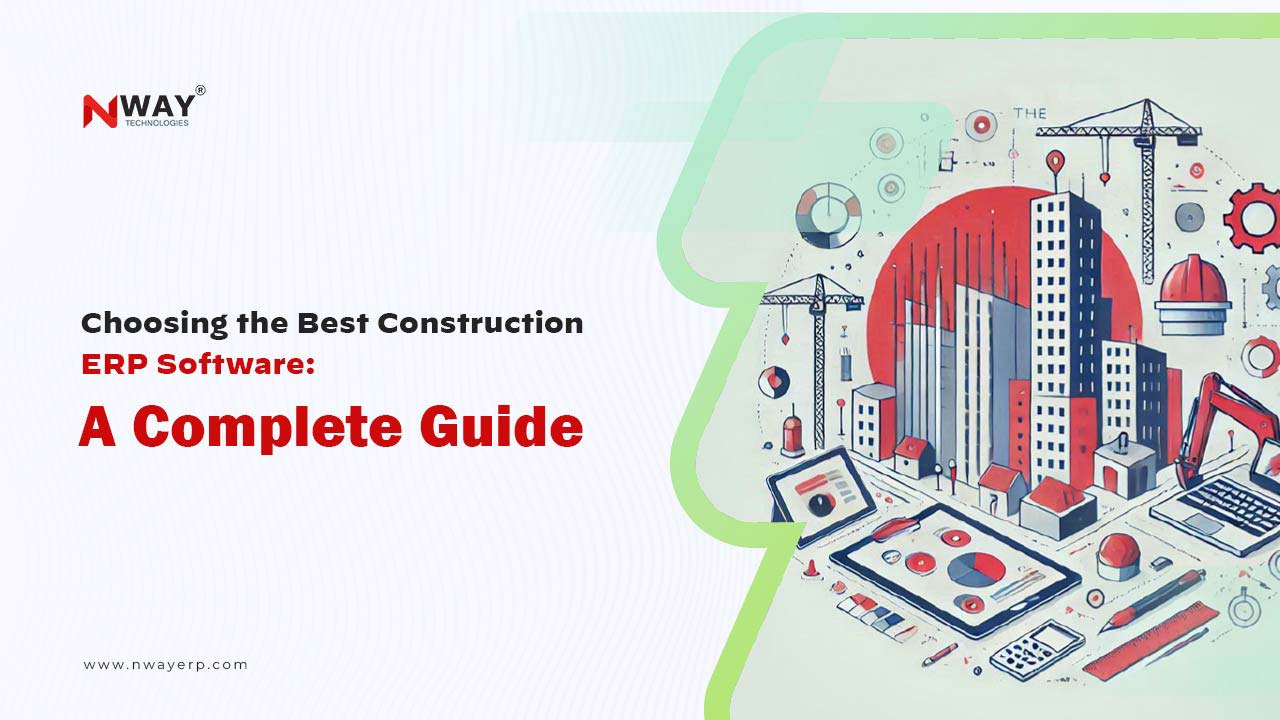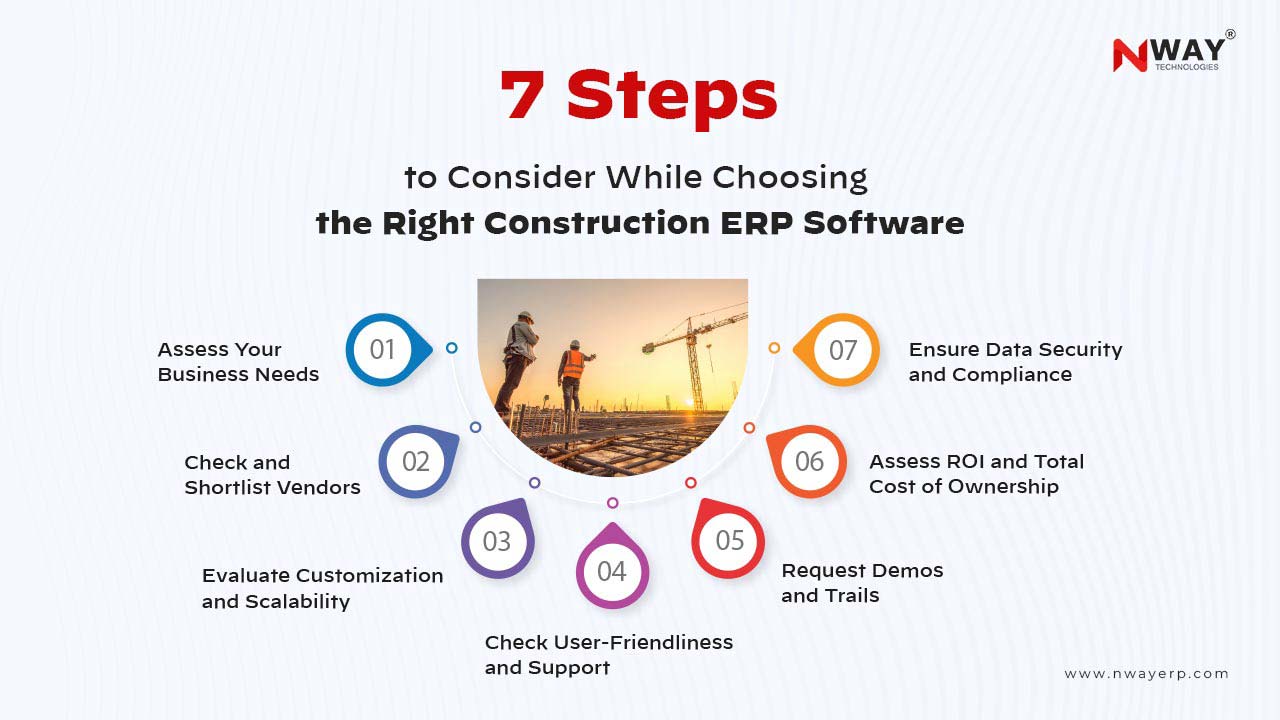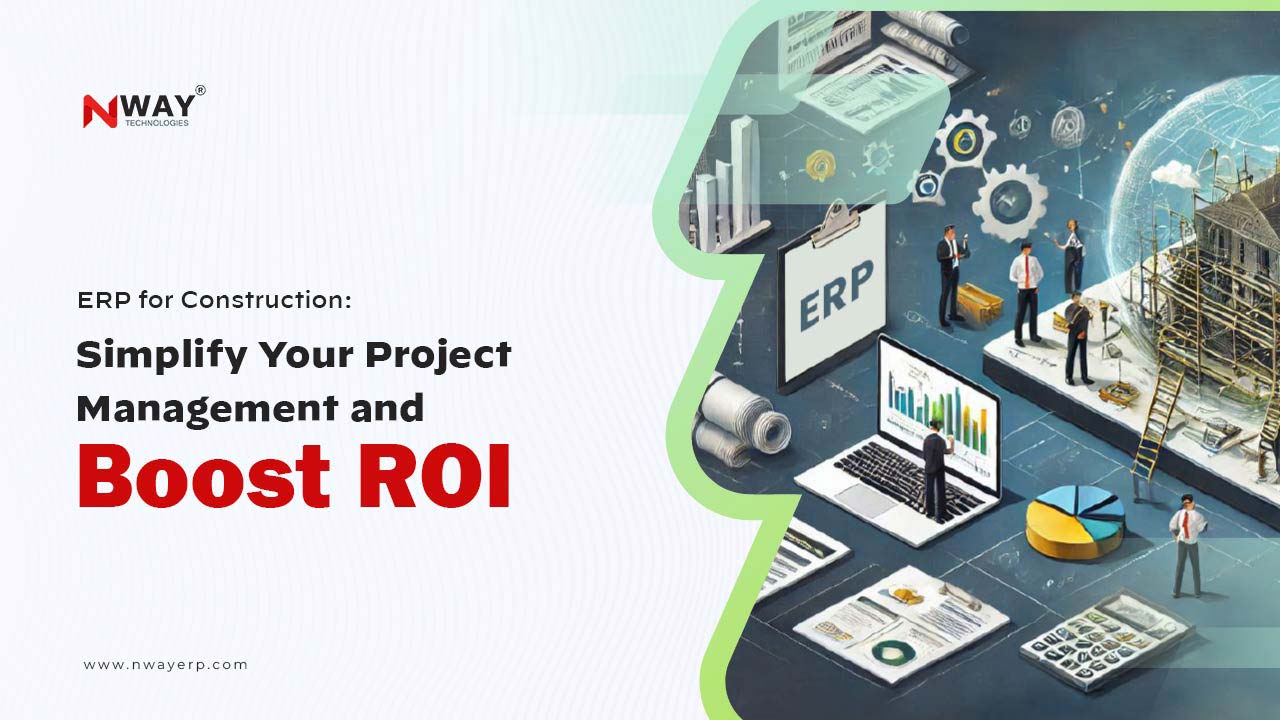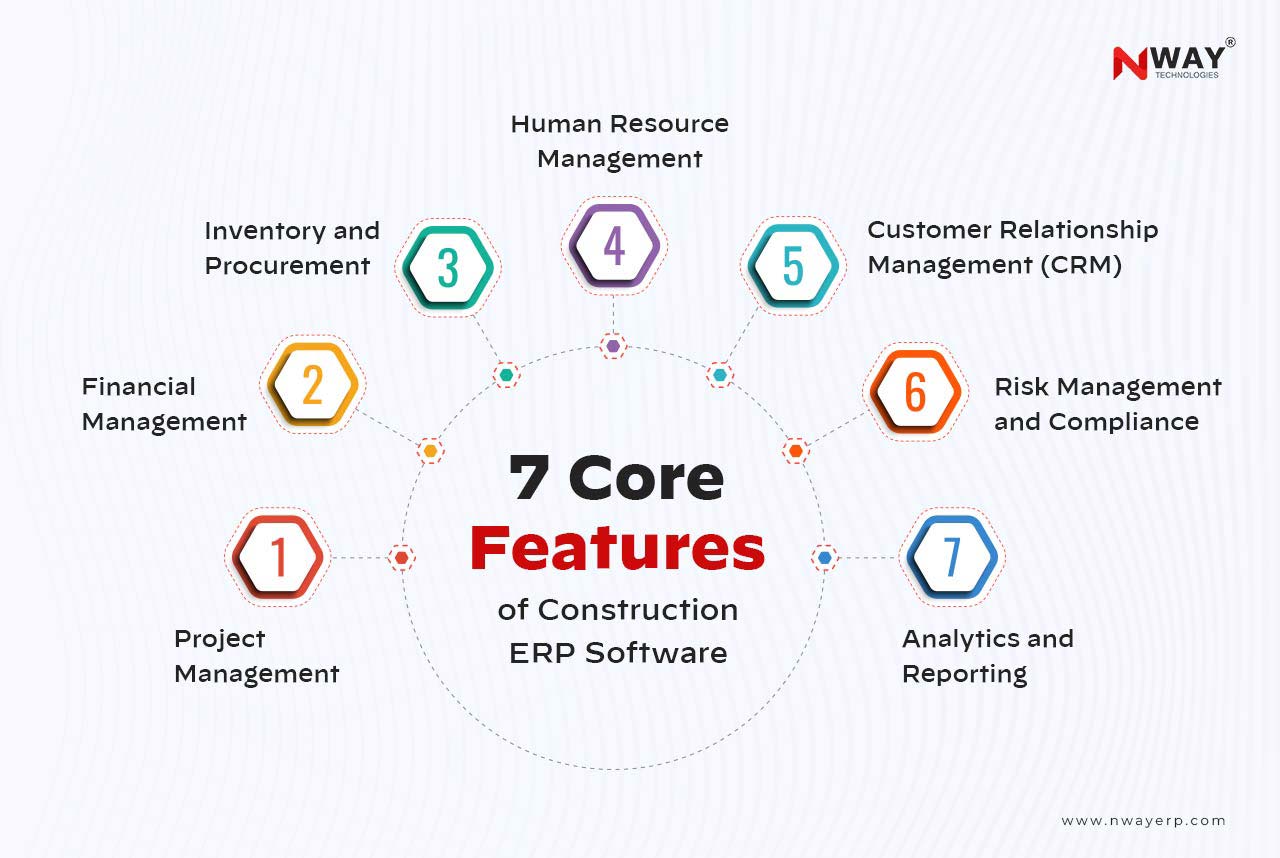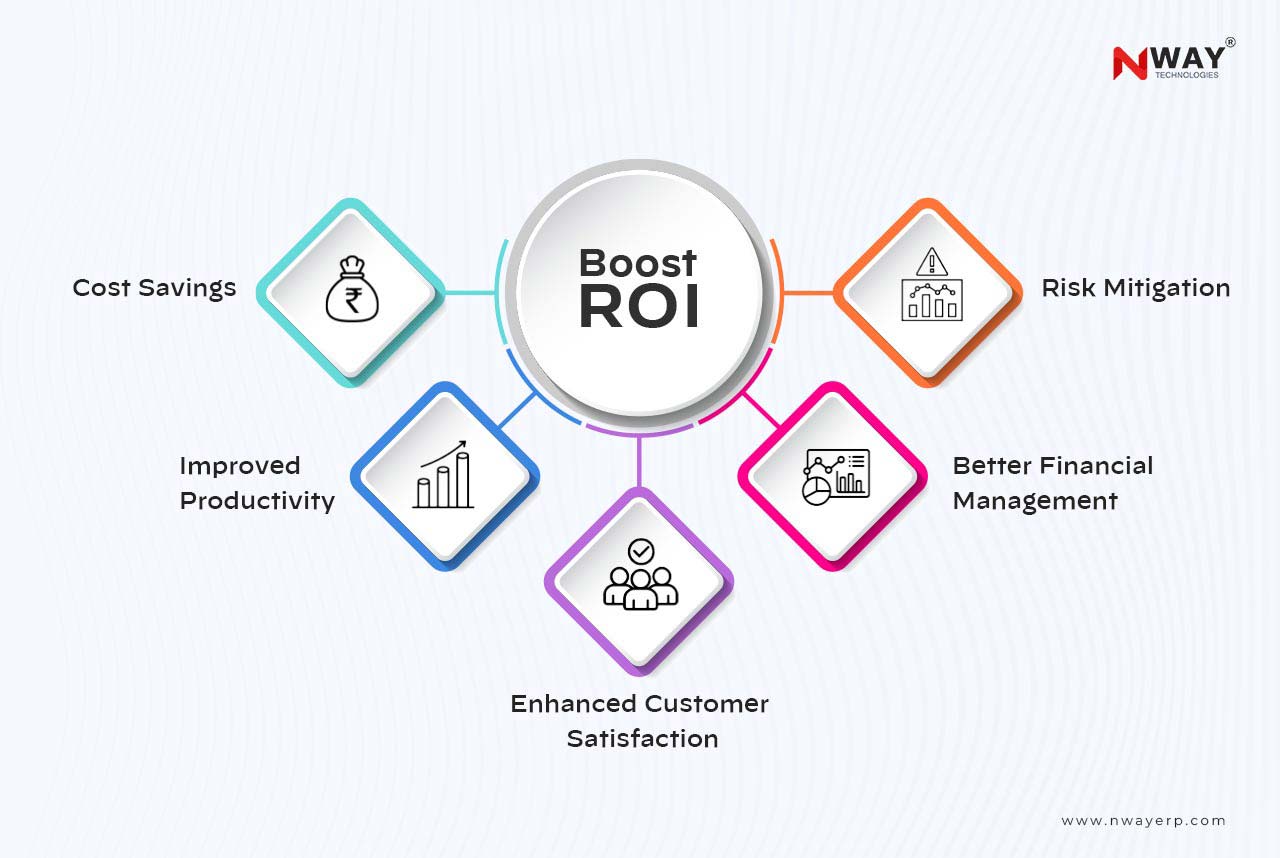Construction projects need close coordination, especially for procurement and vendor management. But handling many suppliers, keeping deliveries on time, and following India’s complex GST rules can be overwhelming, even for experienced contractors. That’s why having a dedicated Vendor Management Software built into a Construction Procurement ERP is so important for large-scale management.
Table of Contents:
- What is Vendor Management in Construction?
- Understanding the Vendor Management Challenge in Construction
- What are the KPIs for Vendor Management?
- What is Construction Vendor Management Software?
- Benefits of Construction Vendor Management Software
- Why Manual Vendor Management Fails in Construction Procurement
- Challenges in Construction Vendor Management & How Construction Procurement ERP Software Can Help
- How Nway ERP Solves Construction Procurement and Vendor Management Challenges
- What To Look For In A Vendor Management Software Solution?
- Why Every Construction Business Needs Vendor Management Software?
- Why Contractors Choose Nway ERP for Construction Procurement Management?
What is Vendor Management in Construction?
Vendor management in construction means choosing, checking, and managing suppliers who provide the materials, machines, and services needed to complete a project.It includes tracking their results, making sure they follow rules, handling contracts, and building good relationships to keep quality high, costs low, and deliveries on time.
Understanding the Vendor Management Challenge in Construction
Managing vendors in construction isn’t just about placing orders. It’s about building a smooth process that ensures good materials, on-time delivery, and rule-following. Contractors often face these common problems:
- Manual Processes and Errors: Many construction companies still use paper, emails, or WhatsApp to manage buying. These manual steps often lead to mistakes, confusion, delays in approval, and poor follow-up with vendors.
- GST Compliance Complexity: India’s GST rules need exact matching of vendor GST details with invoices. If not done right, this can lead to heavy fines, blocked input tax credit, and audit trouble.
- Lack of Visibility: Without a central construction procurement system, it’s hard to follow stock levels, supplier performance, or site-specific buying status. This causes shortages, extra stock, and bad decisions.
- Unreliable Vendor Performance: Late deliveries or poor materials can delay projects and raise costs.
- Payment and Audit Challenges: Slow billing processes hurt vendor relationships, and scattered records make audits harder.
These issues show that vendor management in construction is more than just buying items. It needs a smart, automatic process that saves time, lowers risks, and helps keep projects profitable.
Experience India’s Most Trusted Construction Procurement ERP
Tailored for GST, weighbridge, & boom barrier integration.
What are the KPIs for Vendor Management?
To check how well vendors are working and if buying processes are successful, contractors use key performance indicators (KPIs), such as:
- On-Time Delivery Rate: Over 95% of deliveries should arrive on time to avoid delays.
- Quality Compliance: At least 98% of materials must meet the right standards to avoid rework.
- Cost Variance: Buying costs should stay within 5% of what was agreed in quotes.
- Response Time: Vendors should reply to questions or problems within 24 hours.
- Compliance Rate: 100% of vendors must follow GST and other rules.
- Invoice Accuracy: Over 95% of bills should match buying orders and item receipts.
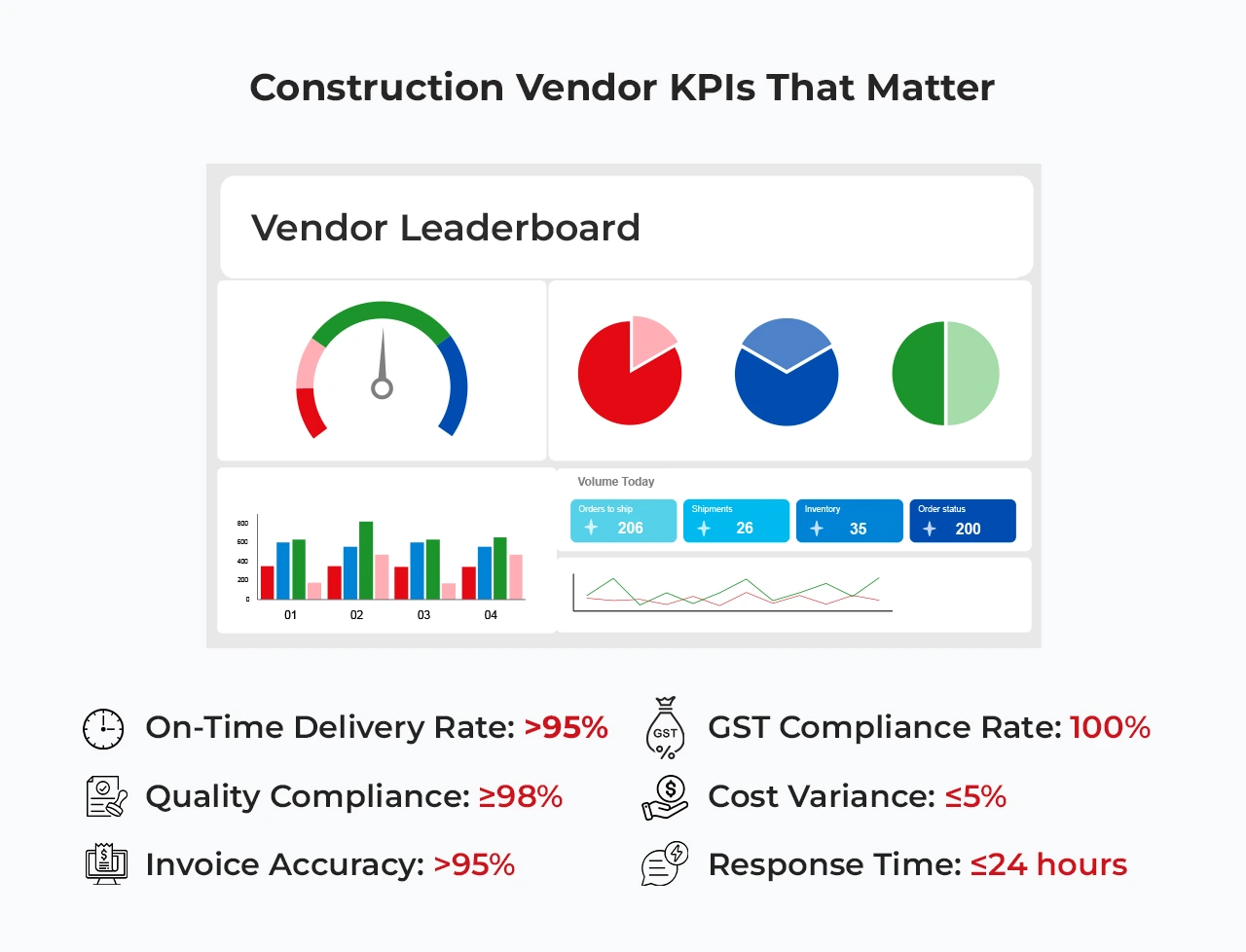
A strong construction vendor management software tracks these KPIs and gives each vendor a score—L1 for top vendors, L2 for reliable ones, and L3 for those needing improvement. This helps contractors choose suppliers wisely.
What is Construction Vendor Management Software?
Construction Vendor Management Software is a digital platform used to manage all vendor-related tasks in construction. It replaces manual work with automated tools to make vendor control faster, easier, and more accurate.
Contractors use this software to:
- Add and approve vendors easily (onboarding),
- Track vendor performance with built-in KPIs,
- Store and manage all documents like contracts, GST details, and certificates,
- Send and compare RFQs to multiple vendors,
- Ensure GST and legal compliance,
- Track deliveries in real time across project sites.
When this Construction Vendor Management Software is connected to a Construction Procurement ERP, it becomes a complete system. It helps contractors handle the full procurement process — from planning to payment — with better speed, accuracy, and control.
Benefits of Construction Vendor Management Software
A good vendor management system for construction is more than just a list of suppliers. It plays a key role in making procurement smoother, cutting risks, and managing costs better. Here are its main benefits:
1. Centralized Vendor Data
No more scattered Excel files or paper records. A construction ERP stores all vendor details — like contact info, compliance papers, contracts, PAN/GST numbers, past orders, and payment history — in one safe place. This helps you:
- Quickly find verified vendor info across all sites
- Speed up vendor onboarding and approvals
- Make audits and checks faster and easier
2. Automated Procurement Workflows
Every step — from RFQs to payments — is handled digitally. Manual work is slow and leads to mistakes. Construction Vendor Management Software helps you:
- Send RFQs to many vendors at once
- Auto-create purchase orders after approvals
- Match bills with deliveries and quality checks
- Send payment reminders and credit notes
This cuts manual work, speeds up procurement, and keeps everyone updated in real time.
3. Vendor Performance Monitoring
Keep track of how your vendors are doing — and hold them accountable. Construction success depends on timely, quality supplies. Vendor management tools offer built-in performance checks like:
- On-time delivery rates
- Quality acceptance or rejection records
- Price trends over time
- Speed of response to quotes or issues
This data helps you rank vendors (L1, L2, L3) and choose the ones who meet your standards.
4. Data-Driven Vendor Selection
Choose vendors based on real facts, not guesswork. Construction Vendor Management Software lets you:
- Compare vendor quotes side by side
- Check past vendor results
- View price changes and material cost history
This helps you negotiate smarter, cut costs, and make better buying decisions using solid data.
5. Improved GST Compliance
Always be ready for audits. Manual GST entry is risky and often leads to mistakes. With ERP-based vendor management:
- GSTINs are checked when vendors are added
- Tax details are filled in and linked to POs and GRNs
- Any mismatches are flagged before payments are made
This helps you stay compliant with Indian GST rules, makes audits easier, and protects your input credits.
Why Manual Vendor Management Fails in Construction Procurement
Many contractors still handle procurement by hand or use basic tools. This might work for small jobs, but it quickly becomes slow, risky, and unmanageable as the project size grows.
Data Silos and Visibility Gaps
Without proper software, information is scattered across spreadsheets, emails, and paper files. This makes it hard to follow vendor performance, track stock, or know what’s happening at each site in real time.
Slow Procurement Cycles
Manually creating purchase requests, comparing vendor quotes, and processing payments takes a lot of time. This adds days or even weeks to your procurement timeline.
GST Mismatches
Manual data entry often causes GST errors. These mistakes can lead to fines, blocked input tax credits, and compliance issues.
Get 100% GST Compliance on All Vendor Invoices Automatically!
Protect your input tax credits and avoid penalties.
Poor Vendor Accountability
Without automatic tracking of KPIs or vendor rankings, it's hard to know which vendors are doing well or to demand better performance or pricing.
These problems show why construction procurement automation isn’t just a nice-to-have — it's a must. It helps contractors stay fast, competitive, and profitable in today’s demanding construction environment.
Challenges in Construction Vendor Management & How Construction Procurement ERP Software Can Help
Vendor management in construction is not just about finding suppliers. It’s about working with many vendors across different project sites, making sure materials arrive on time, checking quality, staying GST-compliant, and syncing buying timelines with project schedules. If these tasks are done by hand or using basic tools, they can slow down the project and raise costs.
One major issue is scattered vendor data. Contractors often deal with different vendors at each site. This leads to duplicate entries, different pricing, and no way to check vendor performance in one place. Without a central system, it’s hard to trust vendors or create company-wide standards for procurement.
Material verification is another big problem. Contractors often get the wrong quantity or poor-quality items. If there’s no way to check deliveries properly, these issues show up only after work starts. That leads to delays, rework, and disputes. Matching deliveries with purchase orders on time is critical — but almost impossible with manual logs.
GST compliance adds more stress. Manual checks often miss errors in vendor GST details or invoice mismatches. This can lead to fines and blocked input tax credits — which hurts businesses already working with tight margins.
Timely procurement is also a challenge. Materials must reach the site exactly when needed — not too early, not too late. If approvals, indent requests, and order tracking are done by hand, delays are very likely, especially when multiple sites are involved.
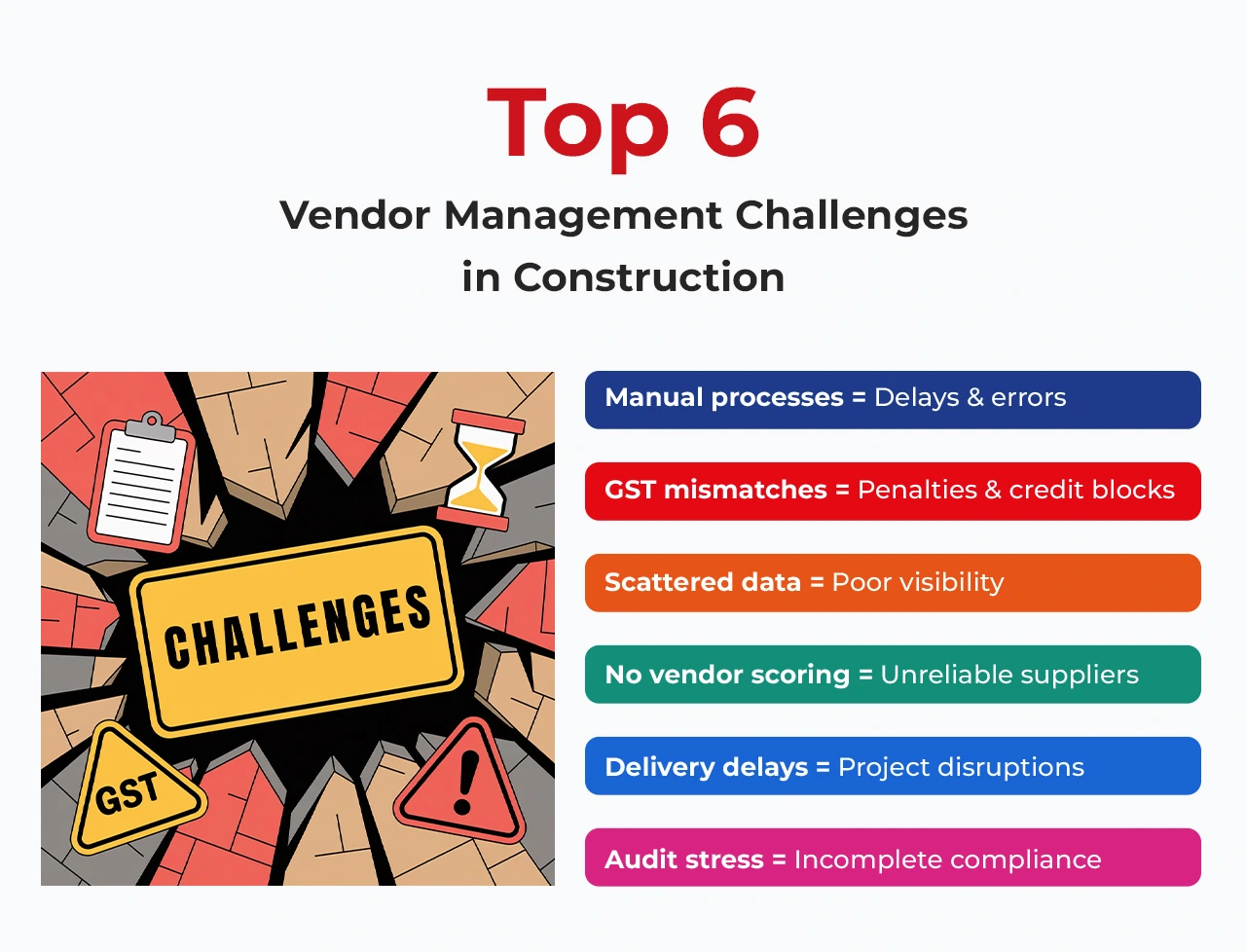
This is where a construction-specific procurement ERP like Nway ERP makes a big difference. It solves these problems by:
- Automating procurement steps
- Keeping all vendor data in one place
- Checking GST details in real time
- Tracking vendor performance and stock levels using dashboards
It turns slow, manual work into a smart, automated system that helps projects stay on schedule and within budget.
How Nway ERP Solves Construction Procurement and Vendor Management Challenges
Nway ERP’s construction procurement system is built specifically for Indian contractors. It’s made to solve real problems faced in vendor management and procurement across construction sites. Here’s how it helps:
1. Weighbridge and Boom Barrier Integration
Nway ERP connects with weighbridge machines and boom barrier systems to confirm deliveries at the gate. It:
- Captures truck weight and time, with auto-logged images
- Compares actual weight with the purchase order to stop fraud or mistakes
- Uses RFID or ANPR systems to allow only approved trucks inside
- Speeds up material checks by 30%, saving manual inspection time
2. Automated GST Validation and Compliance
Nway ERP checks GST numbers, tax rates, and invoice amounts automatically. It lowers the risk of fines and errors. It also saves all GST-related papers digitally, so audits become easier and rules are always followed.
3. Vendor Scorecards and Ranking
The software tracks vendor KPIs all the time and ranks them:
- L1 (top vendors),
- L2 (reliable),
- L3 (needs work)
This helps you:
- Use L1 vendors for critical needs
- Get better prices and terms using performance data
- Save 15–20% on procurement through smart vendor choices
4. Real-Time Dashboards, Analytics, & Alerts
Nway ERP gives you clear dashboards and alerts. You can check:
- Stock levels
- Vendor results
- Procurement costs
- Budget limits
This works across all your sites, helping you make faster and better decisions.
5. Procurement Process Automation
The ERP automates everything — from material requests to final payments. It covers:
- Indent creation
- RFQ sending
- Purchase orders
- Item receipts
- Invoice matching
- Payment processing
This cuts buying cycle time by up to 40%, reduces errors, and keeps vendor relations strong with on-time payments.
6. Multi-Site Coordination and Mobile Access
Nway ERP works for multiple sites. All your procurement data is stored in one place. The mobile-friendly design lets teams request materials, approve orders, and track deliveries from anywhere — reducing delays and improving response time.
Learn More: How Does Construction ERP Software Help in Resource Management?
What To Look For In A Vendor Management Software Solution
Choosing the right vendor management software is key to improving construction procurement and controlling your suppliers. The best tool should handle compliance, track performance, manage documents, and help you make better decisions. Since construction in India has its own challenges, the software must fit these needs and still be easy to use, flexible, and ready to grow with your business.
Indian Construction-Specific Features
Look for features made for India’s construction space. This includes:
- GST validation to check vendor tax details
- Weighbridge and boom barrier integration for delivery checks
- Project-wise procurement tracking
- L1–L3 vendor rankings to score suppliers by performance
Vendor Performance Tracking
The software should track:
- Delivery timelines
- Material quality
- Pricing consistency
- Response time
- Compliance with rules
You’ll get real-time KPIs and scorecards to see which vendors are reliable.
Vendor Comparison & Analytics
You should be able to compare vendors side by side. Look for:
- Cost data
- Performance scores
- Reliability metrics
This helps you choose the best vendors using facts, not guesswork.
Centralized Vendor Data & Document Management
The system must keep all vendor data — contacts, contracts, GST records, compliance papers, and history — in one place. This makes audits and daily work much easier.
Procurement Workflow Automation
The tool should automate key steps like:
- RFQs
- Purchase orders
- Approvals
- Invoice matching
- Payments
This cuts errors and speeds up procurement.
Ease of Use & Mobile Access
Make sure the software is simple to use. It should work on phones too, so your site teams and managers can use it from anywhere.
Customization & Flexibility
You should be able to adjust:
- Workflows
- Approval steps
- Vendor rating rules
- Reports
This helps match the software to your way of working.
Real-Time Dashboards & Reporting
You need clear dashboards that show:
- Procurement status
- Vendor performance
- Stock levels
- Budget use across sites
This helps you stay in control at all times.
GST Compliance & Audit Support
GST checks must be built-in. The software should also save tax documents digitally. This reduces errors and makes audits stress-free.
Scalability & Reliable Support
Pick a system that can grow with your business — with strong support to fix issues quickly.
Cut Vendor-Related Cost Overruns by Approx. 20%
Use smart analytics to negotiate better prices & control budgets.
Learn More: Choosing the Best ERP Software For Your Business: A Complete Guide
Why Every Construction Business Needs Vendor Management Software
Whether you’re a mid-sized builder or a large contractor, weak vendor management can cause serious problems. It can delay your project, raise costs, and shrink your profits. In today’s competitive and rule-heavy construction world, manual methods or generic tools are no longer enough for procurement management in construction.
This is where dedicated Vendor Management Software built into a Construction Procurement ERP makes a big impact.
With a specialized construction vendor management software like Nway ERP’s construction procurement, you get full control over the entire buying process. This type of construction purchase management system keeps all vendor data in one place, automates communication, and lets you track delivery status and material quality in real time. This keeps projects moving and budgets safe.
The software also improves vendor accountability. You can monitor supplier performance, give feedback, and build stronger vendor relationships by paying on time and staying transparent. With the right procurement tools for construction projects, you avoid delays caused by material shortages, poor supplies, or missed rules.
Also, built-in construction procurement automation helps your company stay GST-compliant, makes audits easier, and lowers the chance of fines. This gives you confidence in every purchase, backed by complete documentation and vendor scorecards.
In today’s fast-moving construction industry, using a dedicated construction procurement system in Indi
a helps you stay efficient and competitive. It brings everything under control — from vendor communication to order tracking — and turns messy processes into a smooth, cost-saving system.
In short, any construction business — big or small — can benefit from using a smart Construction Procurement Management system with vendor management features. It helps you cut risk, get better vendor results, and deliver projects on time and on budget.
Learn more: How Construction Engineering Software Can Cut Your Costs by 20%
Why Contractors Choose Nway ERP for Construction Procurement Management
Contractors trust Nway ERP’s construction procurement system in India because it’s built to meet real needs in the construction industry. Here’s why it stands out:
- Tailored for Indian construction Nway ERP includes features like GST validation, weighbridge integration, and boom barrier control — all designed for the way Indian contractors work.
- Affordable and scalable It works for both small and large companies. Whether you’re an SME or a pan-India contractor, the system grows with your business.
- User-friendly The interface is simple and easy to learn. Teams across departments and sites can start using it quickly, with no heavy training needed.
- Comprehensive Nway ERP covers every step of procurement — from adding vendors to making final payments. Everything is connected in one system.
- Supportive You get the smoothest customer support and full customization options, so the software fits your exact needs.
Nway ERP isn’t just a tool — it’s a strong partner for construction businesses. It helps you manage vendors better, simplify procurement, and deliver projects on time and within budget.
In Conclusion
Managing vendors well is key to successful construction procurement. With tight deadlines and strict GST rules, using manual processes or basic ERPs can lead to delays, higher costs, and compliance issues.
A dedicated Construction Procurement ERP like Nway ERP changes this. It automates procurement, checks GST compliance, connects with tools like weighbridges, and gives useful data through dashboards and vendor scorecards.
If you’re a contractor looking for construction vendor management software or procurement tools for construction projects, Nway ERP is the smart, affordable solution — made for India’s construction needs.
Boost Vendor Accountability & Improve Delivery Timelines by up to 30%
Nway ERP helps you manage your procurement and vendors effectively!

